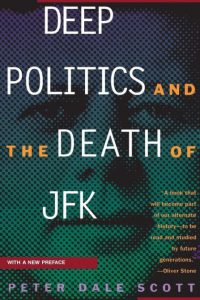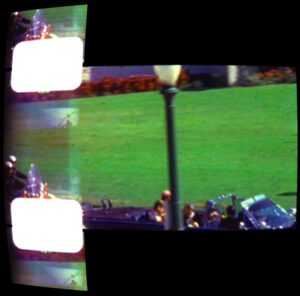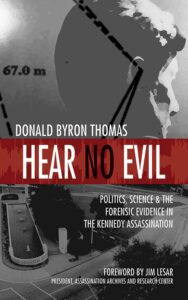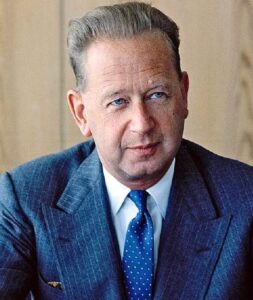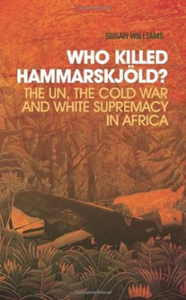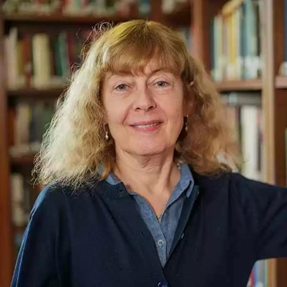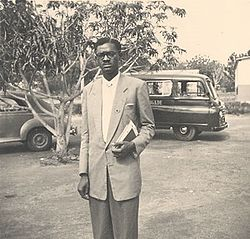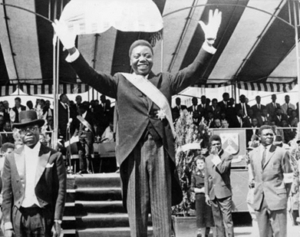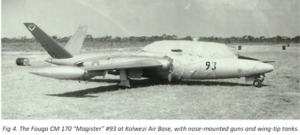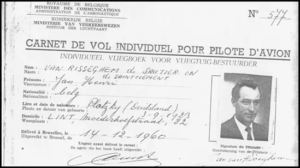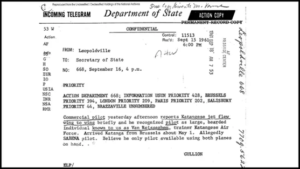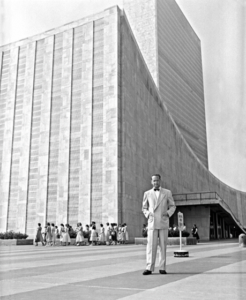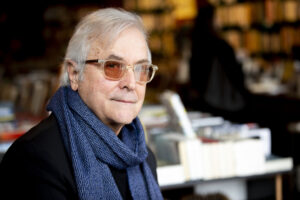
A portrait of David Talbot at The Green Arcade bookstore, Wednesday, Jan. 8, 2020, in San Francisco, Calif. Talbot shares his experiences following his stroke in his new book, Between Heaven and Hell.
The Assassination Archives and Research Center, in cooperation with the Mary Ferrell Foundation, announces an extraordinary research resource: The Talbot-Croft Archive. This archive features the recorded conversations and transcriptions that were developed as primary sources in researching David Talbot’s books, Brothers: The Hidden History of the Kennedy Years (2007) and The Devil’s Chessboard: Allen Dulles, the CIA and the Rise of America’s Secret Government (2015).
This project is made possible with the permission of the author, David Talbot and his long-time research associate, Karen Croft, whose participation and involvement was integral to the creation and collection of these materials.
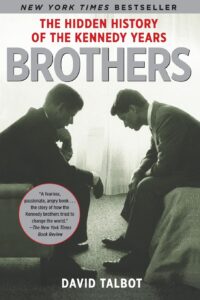 Interviews preserve and document perhaps our most precious resource, the stories of those who have made history as told in their own words. It is through the dedicated efforts of historians, authors, the men and women who practice objective and accountable investigative journalism, by which we may delve most deeply into our past. For those to whom history is more than the record and analysis of documented events, little can be of greater value than the candid reflections of those whose lives have influenced its shaping. History may have many authors and many voices, but once those figures have passed and those voices stilled, we are left to study what remains: the documented record of their words and deeds.
Interviews preserve and document perhaps our most precious resource, the stories of those who have made history as told in their own words. It is through the dedicated efforts of historians, authors, the men and women who practice objective and accountable investigative journalism, by which we may delve most deeply into our past. For those to whom history is more than the record and analysis of documented events, little can be of greater value than the candid reflections of those whose lives have influenced its shaping. History may have many authors and many voices, but once those figures have passed and those voices stilled, we are left to study what remains: the documented record of their words and deeds.
“The greatest brotherly duo in American political history. They gave their lives for the country — and they died for a reason, not simply at the hands of two ‘lone nuts.’ Those who know the true story of the Kennedy brothers’ lives (and I’m not talking about the PBS version) know how truly heroic they were.”
— David Talbot speaking about John and Robert Kennedy, (2016)
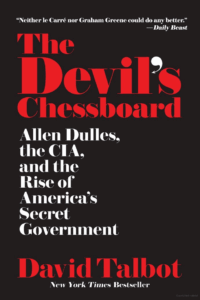 This introduction addresses two equal sides reflected within this project for which David Talbot is responsible. The first pertains to the unique value of unscripted and unrehearsed personal interviews with historical figures. The second, of course, must recognize the strength of David’s ethics, his social conscience, his deeply compassionate conception of literary and social objectives which convey his concerns about where things have gone terribly wrong and how, if we are all properly informed (hidden history-wise), we can work together to make our society better for all. In considering essential points that should be communicated in this introduction, we acknowledge the inseparable connection between the stories he chooses to explore, his intrinsic determination to focus his attention upon darkly complex and meaningful subjects and the absolute integrity of his personal and professional character. It is sometimes said that great works are the product of great souls. David’s life and his works exemplify the best of what it was to which John and Robert Kennedy, and the band of brothers who served them, were so passionately committed: Full use of your powers along lines of excellence.
This introduction addresses two equal sides reflected within this project for which David Talbot is responsible. The first pertains to the unique value of unscripted and unrehearsed personal interviews with historical figures. The second, of course, must recognize the strength of David’s ethics, his social conscience, his deeply compassionate conception of literary and social objectives which convey his concerns about where things have gone terribly wrong and how, if we are all properly informed (hidden history-wise), we can work together to make our society better for all. In considering essential points that should be communicated in this introduction, we acknowledge the inseparable connection between the stories he chooses to explore, his intrinsic determination to focus his attention upon darkly complex and meaningful subjects and the absolute integrity of his personal and professional character. It is sometimes said that great works are the product of great souls. David’s life and his works exemplify the best of what it was to which John and Robert Kennedy, and the band of brothers who served them, were so passionately committed: Full use of your powers along lines of excellence.
His works are a gift to all of us who are haunted by living in a society that emerged after our hopes, and perhaps our destinies, were disrupted by gunfire.
Some work of noble note, may yet be done,
Not unbecoming men that strove with Gods.
The lights begin to twinkle from the rocks:
The long day wanes: the slow moon climbs: the deep
Moans round with many voices. Come, my friends,
‘T is not too late to seek a newer world.
Push off, and sitting well in order smite
The sounding furrows; for my purpose holds
To sail beyond the sunset, and the baths
Of all the western stars, until I die.
It may be that the gulfs will wash us down:
It may be we shall touch the Happy Isles,
And see the great Achilles, whom we knew.
Tho’ much is taken, much abides; and tho’
We are not now that strength which in old days
Moved earth and heaven, that which we are, we are;
One equal temper of heroic hearts,
Made weak by time and fate, but strong in will
To strive, to seek, to find, and not to yield
(Ulysses, Tennyson)
Special thanks to AARC president, Dan Alcorn and MFF president, Rex Bradford; courtesy of David Talbot and Karen Croft, we are honored to present The Talbot–Croft Archive.
Dedicated to the memory of John and Robert Kennedy,
and to all those who continue to seek a newer world.
Interview 54
Audio: Michael Paine – Part 1
Audio: Michael Paine – Part 2
Audio: Michael Paine – Part 3
Transcript: TBA
Michael Ralph Paine (June 25, 1928 – March 1, 2018) was an American engineer who became notable after the assassination of President John F. Kennedy, as he was an acquaintance of Lee Harvey Oswald. His wife, Ruth Paine, housed Oswald’s wife, Marina Oswald, in her home for several months before the assassination until the day after it.
* * *
From John Simkin’s Spartacus Educational: Michael Paine was born in 1928. After university he worked as a research engineer. In 1958 he began work for Bell Helicopter Company in Fort Worth under Walter Dornberger. After his marriage to Ruth Paine he settled in Irving, Texas. The couple were both active members of the American Civil Liberties Union.
In 1963 Michael Paine left the family home and moved into an apartment in Grand Prairie. According to the author Jim Bishop (The Day Kennedy Was Shot), it was a “friendly estrangement.”
Ruth Paine continued to live in Irving and at a party in February, 1963 she was introduced to Marina Oswald and Lee Harvey Oswald by George De Mohrenschildt. On 24th April, 1963, Marina and her daughter went to live with Ruth Paine. Oswald rented a room in Dallas but stored some of his possessions in Ruth Paine’s garage. Ruth also helped Oswald to get a job at the Texas School Book Depository.
According to fellow worker, Dave Noel, Michael Paine discussed the “character of assassins” a few hours before President John F. Kennedy was killed. He also returned to his home in Irving at 3.00 p.m. to find Dallas police officers searching the premises. He told the police: “As soon as I found out about it, I hurried over to see if I could help.”
Anthony Summers reported in his book, The Kennedy Conspiracy that Michael Paine was overheard talking to his wife on the phone. He said that he was sure that Lee Harvey Oswald had killed John F. Kennedy. He added: “We both know who is responsible.”
Buddy Walthers took part in the search of the home of Michael Paine. Walthers told Eric Tagg that they “found six or seven metal filing cabinets full of letters, maps, records and index cards with names of pro-Castro sympathizers.” James DiEugenio has argued that this “cinches the case that the Paines were domestic surveillance agents in the Cold War against communism.”
A work friend of Michael Paine, Frank Krystinik, told the Warren Commission about how he reacted when he heard the news that J. D. Tippit had been killed: “We heard that Officer Tippit had been shot, and it wasn’t very long after that that it came through that the Oswald fellow had been captured, had had a pistol with him, and Michael used some expression, I have forgotten exactly what the expression was, and then he said, “The stupid,” something, I have forgotten. It wasn’t a complimentary thing. He said, “He is not even supposed to have a gun.” And that I can quote, “He is not even supposed to have a gun.” Or, “Not even supposed to own a gun,” I have forgotten.”
Jim Garrison later suggested that Ruth Paine might have been involved in setting Oswald up as the “patsy”. Garrison points out that Paine’s father ” had been employed by the Agency for International Development, regarded by many as a source of cover for the C.I.A. Her brother-in-law was employed by the same agency in the Washington, D.C. area.” He also claims that he had tried to “examine the income tax returns of Ruth and Michael Paine, but I was told that they had been classified as secret…. What was so special about this particular family that made the federal government so protective of it?”
In 2002 Thomas Mallon wrote a book about Ruth Paine’s involvement in the case, Mrs. Paine’s Garage and the Murder of John F. Kennedy. Unlike Jim Garrison Mallon took the view that Paine was completely innocent of any involvement in the Kennedy assassination conspiracy.
*****
Interview 53
Audio: Ed Sherry
Ed (Treefrog) Sherry was an influential and respected authority on records associated with U.S. – Cuba relations and JFK.
From The Devil is In the Details: Alan Dale with Malcolm Blunt on the Assassination of President Kennedy (pub. 2020), here is what Malcolm Blunt wrote about his friend and colleague, Ed Sherry:
“My closest friend in the research community was the Florida-based researcher, Ed Sherry. At the time of his death in 2014, Ed’s email disseminations list included over 700 people. He was an extraordinary person, committed to the cause and a good and trusted friend for so many people. In his last years Ed managed to get the bulk of his collection (and some of mine) accepted by Baylor’s Poage Library in Waco Texas… “
*****
Interview 52
Audio: Milt Ebbins – Part 1
Audio: Milt Ebbins – Part 2
Milton Keith Ebbins (February 20, 1912 – April 4, 2008) was an American trumpeter, bandleader, songwriter, talent manager and movie/television producer.[1][2] He began his career as a trumpet player and bandleader in the early-1930s.
Ebbins became one of the top talent managers in Hollywood, navigating the careers of Count Basie, Sarah Vaughn, Billy Eckstine and Vic Damone. Ebbins also represented actress Elizabeth Montgomery, actor Peter Lawford, actress Patty Duke and comedian Mort Sahl. Lawford was married to Patricia Kennedy, who was President John F. Kennedy’s sister. An article in The Hollywood Reporter stated that “Ebbins’ partnership with Lawford (Chrislaw Productions) brought him into close association with The Rat Pack and the Kennedy clan.”
According to The Hollywood Reporter, “He was a frequent visitor to the Kennedy White House, at times accompanying the President on Air Force One and Marine One.”And “because of his unique position, he was often sought out by authors and has been quoted in many books about the Kennedys.”
*****
Interview 51
Audio: Kathleen Kennedy Townsend – Part 1
Audio: Kathleen Kennedy Townsend – Part 2
Kathleen Hartington Kennedy Townsend (née Kennedy; born July 4, 1951) is an American attorney who served as the sixth lieutenant governor of Maryland from 1995 to 2003. She was the first woman to serve in that role. A member of the Democratic Party, she ran unsuccessfully for governor of Maryland in 2002. The eldest of Robert F. Kennedy and Ethel Skakel’s 11 children, she is named after her paternal aunt Kathleen Cavendish, Marchioness of Hartington. Kennedy is the eldest grandchild of Joseph P. Kennedy Sr. and Rose Kennedy. She spent her childhood between the family’s homes in McLean, Virginia and Hyannis Port, Massachusetts. While growing up, it was not assumed that the girls in the politically oriented Kennedy family would run for office. However, after her uncle, President John F. Kennedy, was assassinated, her father wrote Kathleen saying, “As the oldest of the next generation you have a particular responsibility. … Be kind to others and work for your country.”
In 2010, Townsend became the chair of the non-profit American Bridge, an organization whose focus is to raise funds for Democratic candidates and causes. Since 2021, she has served in the United States Department of Labor as an advisor on retirement.
*****
Interview 50
Audio: Angel Murgado/Angelo Kennedy – Part 1
Audio: Angel Murgado/Angelo Kennedy – Part 2
* * *
Audio: Angel Murgado/Angelo Kennedy II – Part 1
Audio: Angel Murgado/Angelo Kennedy II – Part 2
Audio: Angel Murgado/Angelo Kennedy II – Part 3
* * *
Audio: Angel Murgado/Angelo Kennedy III
From John Simkin’s Spartacus Educational: Angel Murgado (Angelo Kennedy) was born in Cuba on 2nd October, 1939. He arrived in the United States in December, 1956. After Fidel Castro gained power Murgado played an active role in the campaign to overthrow his government.
Murgado joined Brigade 2506 in February, 1961, and two months later he joined the Bay of Pigs invasion of Cuba. A member of the Paratrooper Battalion, Murgado was captured on 21st April, 1961. He was held at Pricenpe Castle and threatened with execution. However, he was eventually released and allowed to return to the United States.
Murgado remained active in the anti-Castro Cuban exile community and in late 1962 he went to the White House with Manuel Artime. Murgado sat in the ante room of the Oval Office while Artime met privately with President John F. Kennedy. Murgado was told that the topic of discussion was the authorization to train a new invasion force. After approval was given for this plan, Artime worked closely with Robert Kennedy in developing this operation.
It was feared that some anti-Castro Cubans might attempt to assassinate John F. Kennedy. Murgado was asked to investigate these claims. During his research he became aware of the activities of Lee Harvey Oswald in New Orleans. At this time he was told that Oswald was working for the FBI as an undercover agent. This information was passed to Robert Kennedy.
Bernardo de Torres and Murgado visited Sylvia Odio on 25th September, 1963. When they arrived, Lee Harvey Oswald was also in the apartment.
Murgado continued to be active in anti-Castro politics and became a prominent member of the Bay of Pigs Dead and Missing in Action Recovery Committee. After the assassination of Robert Kennedy, Murgado changed his name to Angelo Kennedy.
In 1997 Gerry P. Hemming introduced Murgado to Gus Russo. An interview with Murgado appeared in his book, Live By the Sword. In the book, Murgado claims that he accompanied Robert Kennedy on more than one occasion to the home of Norman Rothman, a mobster with ties to Meyer Lansky.
Murgado also gave an interview to Joan Mellen. In an article that appeared in Key West Citizen, Mellen claims that Murgado was one of the three men who visited Sylvia Odio on 25th September, 1963. Two of the men, Leopoldo and Angelo, said they were members of the Junta Revolucionaria. The third man, Leon, was introduced as an American sympathizer who was willing to take part in the assassination of Fidel Castro. After she told them that she was unwilling to get involved in any criminal activity, the three men left.
Odio became convinced that after the assassination of John F. Kennedy that Leon was Lee Harvey Oswald. Odio gave evidence to the Warren Commission and one of its lawyers commented: “Silvia Odio was checked out thoroughly… The evidence is unanimously favorable… Odio is the most significant witness linking Oswald to the anti-Castro Cubans.”
Research carried out by the Federal Bureau of Investigation on behalf of the Warren Commission suggested that the three men were Loran Hall, William Seymour and Lawrence Howard. These were all members of Interpen. Hall later claimed Leon was not Lee Harvey Oswald.
The author, Anthony Summers, suggests that the visit had “been a deliberate ploy to link Junta Revolucionaria, a left-wing exile group, with the assassination”. However, during the House Select Committee on Assassinations investigation Loran Hall, William Seymour and Lawrence Howard were interviewed about this and they all claimed that they did not visit Odio.
According to Murgado, he was Angelo and Leopoldo was Bernardo de Torres and Leon was Lee Harvey Oswald. Joan Mellen adds: “Angelo had been betrayed by a companion he believed he could trust, a man not so much dedicated to the overthrow of Fidel Castro, as Angelo believed, as involved in arranging for Oswald to be blamed for the murder of the President, what the Odio visit was really about.”
In a recent email to John Simkin, Murgado’s son, Amaury Murgado, argued that Mellen had made mistakes with her account of the meeting with Sylvia Odio. “My father has for lack of a better word, made me his representative, so I speak for him when I write this. When my father went to meet with Silvia, he has assured me that Oswald was already in the apartment. The only reason Oswald was known to my father was the same way most of New Orleans new him… through the newspaper and other media outlets. Oswald if you remember was working very hard at getting himself noticed. My father says he never even shock hands with Oswald nor did he speak with him as his business was with Sylvia. At no time did my father have any type of association with Oswald besides this brief encounter.”
*****
Interview 49
Audio: John Loftus – Part 1
Audio: John Loftus – Part 2
* * *
Audio: John Loftus II – Part 1
Audio: John Loftus II – Part 2
John Joseph Loftus (born February 12, 1950), Loftus is the author and co-author of several books on Nazis, espionage, and similar topics including The Belarus Secret (1982), Unholy Trinity: How the Vatican’s Nazi Networks Betrayed Western Intelligence to the Soviets (1992), The Secret War Against the Jews: How Western Espionage Betrayed the Jewish People (1994), Unholy Trinity: The Vatican, the Nazis, and the Swiss Banks (1998), America’s Nazi Secret: An Insider’s History of How the United States Department of Justice Obstructed Congress by: Blocking Congressional Investigations into Famous American Families Who Funded Hitler, Stalin and Arab Terrorists (2010). Although Loftus’ first book, The Belarus Secret, is nonfiction, it was adapted into a TV movie, Kojak: The Belarus File (1985), with Telly Savalas.
*****
Interview 48
Audio: Howard Willens – Part 1
Audio: Howard Willens – Part 2
Howard Penney Willens (born May 27, 1931) is a lawyer and author who served as Assistant Counsel to the Warren Commission from December 1963 to September 1964. In that role, Willens worked with the lawyers and agents conducting the investigation of the assassination of President John F. Kennedy, reviewed the lawyers’ memoranda for submission to members of the commission, and edited the material that became the Report of the commission. His book, History Will Prove Us Right: Inside the Warren Commission Report on the Assassination of John F. Kennedy, published in 2013, relied on previously undisclosed primary sources to document the methods and strategies underlying the “most massive, detailed and convincing piece of detective work ever undertaken.”
*****
Interview 47
Audio: David Lifton – Part 1
Audio: David Lifton – Part 2
David Samuel Lifton (September 20, 1939 – December 6, 2022) was an American author who wrote the 1981 bestseller Best Evidence: Disguise and Deception in the Assassination of John F. Kennedy.
* * *
From John Simkin’s Spartacus Educational: David Lifton was born in New York on 20th September 1939. A graduate of the Cornell University School of Engineering Physics he worked as a computer engineer for North American Aviation in Los Angeles. Lifton worked on the Apollo space program but left the company in 1966.
Lifton now concentrated on his research into the assassination of John F. Kennedy and particularly the life of Lee Harvey Oswald. He has read all the material published by the Warren Commission. He also spent several months at the National Archives in Washington and interviewed many of the important witnesses in the case.
Lifton published an important article on the assassination in Ramparts. He also served as consultant on the Hollywood movies, Executive Action and Oliver Stone’s JFK. Lifton ppeared before the House Select Committee on Assassinations and as an expert witness before the Assassination Records Review Board.
In 1980 Lifton published Best Evidence: Disguise and Deception in the Assassination of John F. Kennedy. Lifton claims that members of the Secret Service agents were involved in the killing of Kennedy. Their involvement was the key to the secret alteration of the President’s wounds.
In the book Lifton argued that the wounds contained in the body of John F. Kennedy were altered somewhere between Parkland Hospital and Bethesda Hospital. Lifton believes that the wounds were altered in order to hide the fact that he had been shot from the front, e.g. the Grassy Knoll. The book was a bestseller and was nominated for a Pulitzer Prize in history.
In September, 1996, David Lifton gave evidence to the Assassination Records Review Board on the Zapruder Film of President Kennedy’s assassination. “Despite the substantial price paid for the film, for all rights, it was not exploited by Time Life as a motion picture film, i.e., it was never shown on TV or sold in any documentary form as a moving pictures. No newsreels, no TV specials, nothing. Yet one of the most controversial aspects of the film were never addressed by the Warren Commission was the violent backward motion of the head depicted on the frames following the fatal shot. What this means has been debated back and forth over the years. Passions run high on both sides. For reasons I never understand, the Warren Commission failed to address the issue. In other words, if we’re to believe the record, the Warren Commission apparently didn’t notice the very thing which has fueled the assassination debate for three decades. And of course the public didn’t even know it was an issue because Time Life chose not to show it as a motion picture film after paying $150,000 for those exclusive rights.”
For many years prior to his death, he was working full-time on a major written work about Lee Harvey Oswald and details about the plan to assassinate JFK that were unearthed in the years following the publication of Best Evidence. His unfinished work, entitled Final Charade, was to explain “what was supposed to have happened on 11/22/63, but didn’t because of unexpected events in Dallas that forced the perpetrators of JFK’s murder to improvise in their desperate attempt to recover control over JFK’s body in order to complete the alterations necessary before his autopsy that would allow his murder to be ruled ‘an accident of history’ and permit the levers of power to operate efficiently to achieve an orderly transition from the Kennedy administration to the Johnson administration. The perpetrators were nearly exposed in 1963, as the evidence reported in Best Evidence clearly documents. The sequence of bizarre, seemingly inexplicable events that happened at Parkland and Bethesda on the afternoon and evening of November 22-23, 1963 were not part of any plan to kill JFK and alter his body before autopsy; it was the best they could do under the circumstances and they succeeded in concealing the truth for almost 60 years.”
David Lifton died in Las Vegas on 5th December 2022.
*****
Interview 46
Audio: Bradley Ayers – Part 1
Audio: Bradley Ayers – Part 2
Bradley Earl Ayers (March 7, 1935 – February 10, 2017) was a U.S. Army special operations officer, CIA operative, writer and political activist. He was known for saying that the CIA played a role in the Assassination of Robert F. Kennedy. Ayers was one of the first career officers to voice opposition to the Vietnam War and to speak out publicly against it. He was born in St. Paul, Minnesota.
* * *
From John Simkin’s Spartacus Educational: In early 1963, Bradley Ayers was selected by the Department of Defense for a sensitive undercover assignment with the Central Intelligence Agency that involved trying to remove Fidel Castro from power in Cuba. According to Ayers he was briefed at the CIA by General Victor Krulak, a personal friend of President John F. Kennedy and a member of the Special Group (SGA).
Ayers was based at JM/WAVE where he worked with members of anti-Castro groups like Alpha 66 and took part in Operation Mongoose. Gaeton Fonzi claims that Ayers worked closely with Johnny Roselli in attempts to assassinate Fidel Castro. In his book, The War That Never Was (1976), Ayers claimed he trained small teams of commandoes “to infiltrate Cuba, reach human targets, and assassinate them. Anyone in a senior position in government was fair game, and it reached down to the provincial heads, police chiefs and so on. But the principal target, we knew, was Castro – there was no secret about that amongst our people.”
Ayers also points out the Robert Kennedy visited CIA personnel at their base in the Everglades: “I’m confident in my gut, that Bobby Kennedy was aware of what we were doing down there. It wasn’t a case of the Agency mounting these assassination operations without the knowledge of the Special Group… RFK had a hands-on kind of control of the operations.” After the assassination of John F. Kennedy the CIA ordered Ayers to shut down the operation.
Bradley Ayers was one of the first career officers to voice opposition to the Vietnam War and to speak out publicly against the influence of private and special interests in American politics. He was honorably discharged from active duty in 1965 and was recommissioned in the United States Army Reserve.
After leaving the United States Army Bradley Ayers worked as licensed commercial pilot and flight instructor. Later he was employed as a real estate broker and as a private detective in Arizona, Florida and Minnesota. He also supplied information to investigative journalist, Jack Anderson.
In 1976 Bradley Ayers published The War That Never Was, an insider’s account of CIA covert operations against Cuba. An expanded paperback version was published in 1980. In the 1980s Ayers worked as an undercover operative with the Drug Enforcement Administration’s South Florida Task Force.
In a letter sent to John R. Tunheim in 1994, Bradley Ayers claimed that nine people based at JM/WAVE “have intimate operational knowledge of the circumstances surrounding the assassination” of John F. Kennedy. Ayers named Theodore Shackley, Grayston Lynch, Felix Rodriguez, Thomas Clines, Gordon Campbell, David Morales, Rip Robertson, Edward Roderick and Tony Sforza as the men who had this information.
Bradley Ayers was interviewed by Jeremy Gunn of the Assassination Records Review Board in May, 1995. According to Gunn: “Ayers claims to have found in the course of his private investigative work, a credible witness who can put David Morales inside the Ambassador Hotel in Los Angeles on the night of June 5, 1968 (RFK’s assassination).”
In 2006 Bradley Ayers published The Zenith Secret: A CIA Insider Exposes the Secret War Against Cuba and the Plot that Killed the Kennedy Brothers.
Ayers died in Somers Lake, Wisconsin on February 10, 2017, aged 81
*****
Interview 45
Audio: Dr. Josiah Thompson
Audio: Dr. Josiah Thompson
Josiah “Tink” Thompson (born 17 January 1935) is an American writer, retired professional private investigator, and former philosophy professor. In 1967, he published both The Lonely Labyrinth, a study of Kierkegaard’s pseudonymous works, and Six Seconds in Dallas: A Micro-Study of the Kennedy Assassination. Gumshoe: Reflections in a Private Eye is a memoir of his career as a private investigator in San Francisco. The culmination of his half-century-long Kennedy assassination project was published in early 2021 as Last Second in Dallas.
Alan Dale’s conversations with Dr. Thompson may be heard HERE and HERE.
*****
Interview 44
Audio: James K. Galbraith
* * *
Audio: James K. Galbraith II
James Kenneth Galbraith (born January 29, 1952) is an American economist. He is a professor at the Lyndon B. Johnson School of Public Affairs and at the Department of Government, University of Texas at Austin. He is a respected author and educator.
He is also a Senior Scholar with the Levy Economics Institute of Bard College and part of the executive committee of the World Economics Association, created in 2011.
Galbraith is a son of the renowned Canadian-American economist John Kenneth Galbraith and Catherine Galbraith (née Catherine Merriam Atwater), and is the brother of the former diplomat, commentator and 2016 Vermont gubernatorial candidate Peter W. Galbraith. He earned his B.A., magna cum laude, from Harvard College in 1974 and Ph.D. from Yale University in 1981, both in economics. From 1974 to 1975, Galbraith studied as a Marshall Scholar at King’s College, Cambridge.
*****
Interview 43
Audio: Anthony Lewis
Joseph Anthony Lewis (March 27, 1927 – March 25, 2013) was an American public intellectual and journalist. He was a two-time winner of the Pulitzer Prize and was a columnist for The New York Times. He is credited with creating the field of legal journalism in the United States.
Early in Lewis’ career as a legal journalist, Supreme Court Justice Felix Frankfurter told an editor of The New York Times: “I can’t believe what this young man achieved. There are not two justices of this court who have such a grasp of these cases.” At his death, Nicholas B. Lemann, the dean of Columbia University School of Journalism, said: “At a liberal moment in American history, he was one of the defining liberal voices.”
Reflecting on his years as a columnist, he said he had learned two lessons:
One is that certainty is the enemy of decency and humanity in people who are sure they are right, like Osama bin Laden and (then-Attorney General) John Ashcroft. And secondly that for this country at least, given the kind of obstreperous, populous, diverse country we are, law is the absolute essential. And when governments short-cut the law, it’s extremely dangerous.
When told Henry Kissinger had once described him as “always wrong”, Lewis replied: “Probably because I wrote in a very uncomplimentary way about him. I didn’t like him. He did things that were very damaging to human beings.”
*****
Interview 42
Audio: Robert Vaughn
Robert Francis Vaughn (November 22, 1932 – November 11, 2016) was an American actor and political activist, whose career in film, television and theater spanned nearly six decades and who was best known for his role as secret agent Napoleon Solo on The Man from U.N.C.L.E. (1964–68).
Aside from his acting career, Vaughn was active in Democratic Party politics. He was chair of the California Democratic State Central Committee speakers bureau during the 1960s, and publicly campaigned against the Vietnam War as a member of the peace group Another Mother for Peace. A PhD in communications, his 1970 doctoral thesis “The Influence of the House Committee on Un-American Activities on the American Theater 1938–58” is considered “the most complete and intelligent treatment of the virulent practice of blacklisting now available.” His book on the subject of persecution for political beliefs within Hollywood’s post-WWII, Only Victims: A Study of Show Business Blacklisting, was published in 1972.
Vaughn was a longtime member of the Democratic Party. His family was also Democratic and was involved in politics in Minneapolis. Early in his career, he was described as a “liberal Democrat.” He was opposed to the Hollywood Blacklist of suspected Communists on freedom of speech principles, but Vaughn also was opposed to Communism as a totalitarian system. Vaughn campaigned for John F. Kennedy in the 1960 United States presidential election. He was the chair of the California Democratic State Central Committee speakers bureau and actively campaigned for candidates in the 1960s.
Vaughn was the first popular American actor to take a public stand against the Vietnam War and was active in the peace group Another Mother for Peace. Vaughn debated with William F. Buckley Jr. on his program Firing Line on the Vietnam War. With Dick Van Dyke and Carl Reiner, he was a founder of Dissenting Democrats. Early in the 1968 presidential election, they supported the candidacy of Minnesota Senator Eugene McCarthy, who was running for president as an alternative to Vice President Hubert Humphrey, who had supported President Lyndon Johnson’s escalation of the war in Vietnam.
Vaughn was reported to have political ambitions of his own, but in a 1973 interview, he denied having had any political aspirations. In a conversation with historian Jack Sanders, he stated that after the assassination of Robert F. Kennedy in 1968, “I lost heart for the battle”
His autobiography, A Fortunate Life, was published in 2008.
*****
Interview 41
Audio: Senator Joe Tydings – Part 1
Audio: Senator Joe Tydings – Part 2
Joseph Davies Tydings (né Cheesborough; May 4, 1928 – October 8, 2018) was an American lawyer and politician from Maryland. A member of the Democratic Party, he was most notable for his service as a member of the United States Senate for a single term from 1965 to 1971. In 1954 he was a successful Democratic candidate for the Maryland House of Delegates from Harford County, Maryland. He served as a Delegate from 1955 to 1961, when he was appointed United States Attorney for Maryland by President John F. Kennedy, a close friend.
Tydings argued Eisenstadt v. Baird, in which the Supreme Court of the United States legalized birth control for single persons in 1972. The decision has been described as among the most influential Supreme Court decisions of the 20th century
*****
Interview 40
Audio: Ruben Carbajal – Part 1
Audio: Ruben Carbajal – Part 2
Ruben Carbajal was a life-long friend and confidant of CIA officer David Sanchez Morales. Carbajal was present during several key moments in Morales’s life, including a 1973 trip to Washington, D.C., where he and Robert Walton met with Morales, who was then a Consultant to the Deputy Director for Operations Counter Insurgency and Special Activities.
During this period, Morales reportedly told Carbajal that he had personally eliminated several political figures in Chile and that he had been involved in the Bay of Pigs Invasion, expressing anger toward President Kennedy for the operation’s failure, stating, “Kennedy had been responsible for him having to watch all the men he recruited and trained get wiped out. Well, we took care of that SOB, didn’t we?” Carbajal also recalled Morales making a controversial statement about the assassinations of John F. Kennedy and Robert F. Kennedy, saying, “I was in Dallas when we got the son of a bitch, and I was in Los Angeles when we got the little bastard.”
These remarks, along with Morales’s known involvement in covert CIA operations, have led to speculation about his potential role in the assassinations, a theory supported by researchers like Gaeton Fonzi, who learned of Morales as an investigator for the United States Senate Select Committee to Study Governmental Operations with Respect to Intelligence Activities.
* * *
From John Simkin’s Spartacus Educational: Gaeton Fonzi carried out a full investigation of Morales while working for the House Select Committee on Assassinations (HSCA). Unfortunately, Morales could not testify before the HSCA because he died of a heart attack on 8th May, 1978.
Fonzi tracked down Ruben Carbajal, a very close friend of Morales. Carbajal saw Morales the night before he died. He also visited Morales in hospital when he received news of the heart attack. Carbajal is convinced that Morales was killed by the CIA . Morales had told Carbajal the agency would do this if you posed a threat to covert operations. Morales, a heavy drinker, had a reputation for being indiscreet when intoxicated. On 4th August 1973, Morales allowed himself to be photographed by Kevin Scofield of the Arizona Republic at the El Molino restaurant. When the photograph appeared in the newspaper the following day, it identified Morales as Director for Operations Counterinsurgency and Special Activities in Washington.
Ruben Carbajal put Gaeton Fonzi in contact with Bob Walton, a business associate of David Morales. Walton confirmed Carbajal’s account that Morales feared being killed by the CIA. On one occasion he told him: “I know too much”. Walton also told him about a discussion he had with Morales about John F. Kennedy in the spring of 1973. Walton had done some volunteer work for Kennedy’s Senatorial campaign. When hearing this news, Morales launched an attack on Kennedy, describing him as a wimp who had betrayed the anti-Castro Cubans at the Bay of Pigs. He ended up by saying: “Well, we took care of that son of a bitch, didn’t we?” Carbajal, who was also present at this meeting, confirmed Walton’s account of what Morales said.
*****
Interview 39
Audio: Cynthia Helms – Part 1
Audio: Cynthia Helms – Part 2
Cynthia Helms was the wife of CIA legend Richard Helms. She authored a memoir, An Intriguing Life: A Memoir of War, Washington, and Marriage to an American Spymaster.
*****
Interview 37 and 38
Audio: Jack Newfield (0:00 – 14:02) – Dick Goodwin II (14:20)
Jack Abraham Newfield (February 18, 1938 – December 20, 2004) was an American journalist, columnist, author, documentary filmmaker and activist. Newfield wrote for the Village Voice, New York Daily News, New York Post, New York Sun, New York, Parade, Tikkun, Mother Jones, and The Nation and monthly columns for several labor union newspapers. In his autobiography, Somebody’s Gotta Tell It: The Upbeat Memoir of a Working-Class Journalist (2002), Newfield said, “The point is not to confuse objectivity with truth.”
A career beat reporter, Newfield wrote prolifically about modern society, culture, and politics, on a range of topics relevant to urban life, such as municipal corruption, the police, and labor unions, and also professional sports, especially baseball and boxing, as well as contemporary music.[ He wrote numerous books about modern social and political subjects, including A Prophetic Minority (1966) and Robert Kennedy: A Memoir.
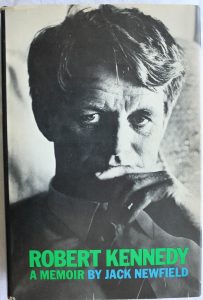 The New York Times called Newfield’s book Robert Kennedy: A Memoir (1969) a “a perceptive and moving book,” and it was received again when it was reissued in 2003, on the 35th anniversary of Kennedy’s murder. Newfield was traveling with Kennedy and his campaign when the senator from New York was assassinated in Los Angeles in June of 1968. He endeavors to separate “the man from the myth” in his first-hand account of the assassinated politician. He wrote about Kennedy, “Part of him was soldier, priest, radical, and football coach. But he was none of these. He was a politician; His enemies said he was consumed with selfish ambition, a ruthless opportunist exploiting his brother’s legend. But he was too passionate and too vulnerable ever to be the cool and confident operator his brother was.”
The New York Times called Newfield’s book Robert Kennedy: A Memoir (1969) a “a perceptive and moving book,” and it was received again when it was reissued in 2003, on the 35th anniversary of Kennedy’s murder. Newfield was traveling with Kennedy and his campaign when the senator from New York was assassinated in Los Angeles in June of 1968. He endeavors to separate “the man from the myth” in his first-hand account of the assassinated politician. He wrote about Kennedy, “Part of him was soldier, priest, radical, and football coach. But he was none of these. He was a politician; His enemies said he was consumed with selfish ambition, a ruthless opportunist exploiting his brother’s legend. But he was too passionate and too vulnerable ever to be the cool and confident operator his brother was.”
* * *
Audio: Dick Goodwin II – (continued)
Richard “Dick” Naradof Goodwin (December 7, 1931 – May 20, 2018) [See Interview 03 below]
*****
Interview 36
Audio: Joseph Califano
Joseph Anthony Califano, Jr. (born May 15, 1931) is an American attorney, professor, and public servant. He is known for the roles he played in shaping welfare policies in the cabinets of Presidents Lyndon B. Johnson and Jimmy Carter and for serving as United States Secretary of Health, Education, and Welfare in the Carter administration. He is also the founder and chairman of The National Center on Addiction and Substance Abuse at Columbia University (CASAColumbia), an evidence-based research organization, which is now the Partnership to End Addiction, where Califano holds the title of Chair Emeritus.
He has been an adjunct professor of public health at Columbia University Medical School and is a member of the Institute of Medicine of the National Academy of Sciences.
In April 1961, Califano became Special Assistant to the General Counsel of the U. S. Department of Defense. In July 1962, he was appointed Special Assistant to the United States Secretary of the Army. On July 1, 1963, he was appointed General Counsel of the Army. He also served as Special Assistant to the Secretary of the Army for Civil Functions, supervising the U.S. Army Corps of Engineers’ Civil Works Program and was a member of the President’s Appalachian Regional Commission. In early 1964, Califano was selected to serve as the principal legal advisor to the United States Delegation to the Investigating Committee of the Organization of American States on the Panama riots of January 1964. Subsequently, he was also selected to present the United States case before the International Commission of Jurists during hearings held in Panama dealing with those riots. In recognition of his work as General Counsel of the Department of the Army, Califano was awarded the Distinguished Civilian Service Medal, the highest civilian award of the Army.
On April 1, 1964, Califano was appointed Special Assistant to the Secretary and Deputy Secretary of Defense. He had special responsibilities for Department of Defense liaison with the Office of the President of the United States. He also acted as Executive Secretary of the President’s Advisory Committee on Supersonic Transport, as the Department of Defense representative on the President’s Committee on the Economic Impact of Defense and Disarmament, and as a member of the Federal Radiation Council. In recognition of his work as the Special Assistant to the Secretary and Deputy Secretary of Defense, Califano was awarded the Defense Distinguished Service Medal of the Department of Defense. Between March 21 and 25, 1965, Califano was assigned to monitor the progress of the historic March from Selma to Montgomery which helped ensure the passage of the landmark Voting Rights Act of 1965.
Califano was appointed Special Assistant to President Lyndon B. Johnson on July 26, 1965. In this position, Califano served as LBJ’s chief domestic aide, developing the President’s legislative program as well as helping coordinate economic policies and handling domestic crises. He also worked on a variety of domestic problems, including labor-management relations, balance of payments, health care, education, environmental and urban issues, and civil rights. He served in this position until January 20, 1969. While in this post, The New York Times called him “The Deputy President for Domestic Affairs.”
He is the author of Governing America: An Insider’s Report from the White House and the Cabinet (pub. 1981).
*****
Interview 35
Audio: Gus Russo – Part 1
Audio: Gus Russo – Part 2
Gus G. Russo (born 1950 in Baltimore, Maryland). For thirty years, Gus Russo has been an investigative reporter, author of nine non-fiction books, and writer and/or producer of many national and international documentaries for major networks. His books have received Book of the Month Club and History Book Club Featured Selections, three have been optioned for films, and one, “The Outfit,” was a Pulitzer nominee. His October 2008 book, “Brothers in Arms: The Kennedys, the Castros, and the Politics of Murder,” was named Winner of the 2008 History Prize by the New York Book Festival. April 2011 saw the publication of his memoir, “Boomer Days.” In 2013, he released “Where Were You?” with Tom Brokaw. A number of his book projects are in various stages of film and TV development.
Russo was part of a team of researchers that worked on the 1993 Frontline Lee Harvey Oswald documentary, Who Was Lee Harvey Oswald?, for PBS. He is the author of Live by the Sword: The Secret War Against Castro and the Death of JFK, a book which states that Lee Harvey Oswald alone killed the president in retribution for Kennedy’s policies toward Fidel Castro and Cuba.[1]
Russo has also written books about the Chicago Outfit and mob lawyer Sidney Korshak. In The Outfit, and Supermob, Russo points out that while the Mafia is responsible for heinous crimes, they aren’t the only “business” that engages in destructive and illegal activities. The Mafia’s “upper world” counterparts, big business, has been responsible for many crimes themselves (white collar crime), have escaped punishment, and still operate without being prosecuted.
Co-authored by Stephen Molton, Brothers In Arms: The Kennedys, the Castros, and the Politics of Murder states that Castro’s regime employed Oswald in retaliation for plots against the Cuban leader
*****
Interview 34
Audio: Siri Hari Angleton – Part 1
Audio: Siri Hari Angleton – Part 2
Siri Hari Kaur Angleton-Khalsa, formerly known as Lucy d’Autremont Angleton, was brought up in the ‘60s and ‘70s around the political and cultural leaders of Washington, D.C. Her father, James Jesus Angleton, was the long-serving Chief of Counterintelligence for the CIA. Her parents colored her childhood with brilliant visionaries involved in changing the course of history. Educated at private schools, she later graduated from Boston University with a BA in French.
Thanks to her sister, Guru Sangat Kaur, Siri Hari adopted a yogic lifestyle after meeting her spiritual teacher, Yogi Bhajan, at age twelve. She started doing Kundalini Yoga and stopped eating meat at age thirteen. After college, Siri Hari moved to New Mexico and Los Angeles to study with Yogi Bhajan. Later, she served on his staff and traveled with him until his death in 2004. She is currently working on the biographies and teachings of the ten Sikh Gurus and has completed books on Guru Nanak and Guru Angad.
The film to which the early part of this conversation refers is The Good Shepherd, which features Matt Damon as a lead character based in large part upon James Angleton.
*****
Interview 33
Audio: Harris Wofford
Harris Llewellyn Wofford, Jr. (April 9, 1926 – January 21, 2019) was an American attorney, civil rights activist, and Democratic Party politician who represented Pennsylvania in the United States Senate from 1991 to 1995.
Wofford first met John F. Kennedy in 1947 at a party at Clare Boothe Luce’s Connecticut home. Wofford’s political career began in 1960 when Kennedy asked him to join his presidential campaign and work with Sargent Shriver on winning over the “Negro vote.”
When King was imprisoned shortly before the election, Wofford and Shriver persuaded Kennedy to call King’s wife, Coretta Scott King, who faced the specter of her husband sentenced to hard labor in a Georgia prison for a minor traffic violation while she was in an advanced stage of pregnancy. This prompted Martin Luther King Sr. to switch his endorsement from Richard Nixon to Kennedy without the knowledge of Ted Sorensen, Ted Kennedy and Kenneth O’Donnell. Following the phone call, Wofford and other Kennedy aides assembled a pamphlet that referenced the call, printed on blue paper and known as the “blue bomb;” some 2 million copies were circulated, mostly through African American churches—”below the registry of the news and white culture. It had enormous influence among black voters.”
In 1961, Kennedy appointed him as a Special Assistant to the President for Civil Rights. In the White House, he served as chairman of the Subcabinet Group on Civil Rights. Wofford was instrumental in the formation of the Peace Corps and served as the Peace Corps’ special representative to Africa and director of operations in Ethiopia. He was appointed associate director of the Peace Corps in 1964 and held that position until 1966. He also participated in the Selma to Montgomery marches in 1965. Wofford’s book Of Kennedys and Kings: Making Sense of the Sixties details his years in the civil rights movement and the creation of the Peace Corps.
*****
Interview 32
Audio: Mark Lane – Part 1
Audio: Mark Lane – Part 2
Mark Lane (February 24, 1927 – May 10, 2016) was an American attorney, New York state legislator, civil rights activist, and Vietnam war-crimes investigator. Sometimes referred to as a gadfly, Lane is best known as a leading researcher, author, and conspiracy theorist on the assassination of U.S. President John F. Kennedy.
Lane authored or co-authored a dozen books, including five on the JFK assassination, the most notable of which was Rush to Judgment (1966). It reached number one on The New York Times bestseller list. The book was written as a trial lawyer’s adversarial argument against the methods and conclusions of the Warren Commission. Lane’s lifelong involvement with the JFK assassination began shortly after the events in Dallas when he was retained by Marguerite Oswald, mother of accused assassin Lee Harvey Oswald, to represent her murdered son before the Warren Commission. Lane later defended other publicly scorned outcasts, including convicted assassin James Earl Ray, American Indian Movement activists Dennis Banks and Russell Means, and cult leader Jim Jones. One of Lane’s most gratifying legal achievements came in 1989 when he obtained the release of James Richardson, an African-American man wrongfully convicted of murdering his own children.
President Kennedy’s assassination
After the assassination of President John F. Kennedy, Lane wrote a letter to Chief Justice Earl Warren on December 17, 1963, requesting that the Warren Commission give consideration to appointing defense counsel to advocate for Lee Harvey Oswald’s rights, and enclosed a 10,000 word “brief” that he had submitted for publication. Published less than four weeks after the assassination, Lane’s article in the December 19 issue of National Guardian, “Oswald Innocent? A Lawyer’s Brief,” attempted to rebut various assertions made by Dallas County District Attorney Henry Wade regarding the assassination of JFK and the murder of Dallas policeman J. D. Tippit, and to offer a defense of Oswald. Oswald’s mother, Marguerite Oswald, reached out to Lane after reading the article.
In December, Lane travelled to Dallas to question Oswald’s family, and three days later suggested to Mrs. Oswald that she sue the city of Dallas for the death of her son. Lane said: “It would be an attempt to give Lee Oswald in death what he could not obtain in life—a fair trial.” Mrs. Oswald announced on January 14 that she had hired Lane to represent her son before the Warren Commission. After Lane notified the Commission that he had been retained by Marguerite Oswald to represent her deceased son, the Commission’s general counsel J. Lee Rankin replied: “The Commission does not believe that it would be useful or desirable to permit an attorney representing Lee Harvey Oswald to have access to the investigative materials within the possession of the Commission or to participate in any hearings to be conducted by the Commission.” Although Warren reversed that position with a statement released on February 25 that said Walter E. Craig, president of the American Bar Association, had been appointed by the Commission to represent the interests of Oswald, Lane remarked that he still considered himself to be Oswald’s counsel.
Lane testified before the Warren Commission on March 4, 1964 and again on July 2, 1964. In his March 4 testimony, Lane said that he had conducted a phone interview five days earlier with Helen Markham (a witness to the Officer Tippit murder), and that she described Tippit’s killer as “short, a little on the heavy side, and his hair was somewhat bushy.” He added, “I think it is fair to state that an accurate description of Oswald would be average height, quite slender with thin and receding hair.”
At the beginning of April, Mrs. Oswald asked Lane for a copy of his report, and requested that he stop any further “organized campaign” on behalf of her son through his Citizens’ Committee of Inquiry (CCI), and terminated his representation.
In his July 2 testimony, Lane’s exchanges with Chief Justice Warren were often heated. After Lane reiterated his request to serve as Oswald’s counsel, Warren reminded him that the Commission had previously denied his request to act as counsel, explaining that Marina Oswald was her late husband’s legal representative and that she was already represented by counsel. In addressing the assertion that Markham’s description of Tippit’s killer did not resemble Oswald, the Commission’s lawyers said they had reviewed the telephone transcript in which she was alleged to have made her comments to Lane. The Warren Report stated: “A review of the complete transcript has satisfied the Commission that Mrs. Markham strongly reaffirmed her positive identification of Oswald and denied having described the killer as short, stocky and having bushy hair.” The discrepancy over this matter was a key rationale for Lane to reappear before the Commission in July. Chief Justice Warren told Lane that the Commission had “every reason to doubt the truthfulness” of some of his testimony due to his apparent misrepresentation of what Markham told him. It was observed that Warren displayed significant contempt for Lane. According to biographer Ed Cray, Warren deemed Lane “a publicity seeker who played fast and loose with the subject.” Warren maintained that the Commission had investigated all leads and left no witness unheard.
Lane’s work on the assassination prompted Bertrand Russell to rally support for the formation of a Who Killed Kennedy Committee in Britain. [See 16 Questions on the Assassination by Bertrand Russell, pub. 6 September, 1964]
In December 1966, Lane debated William F. Buckley Jr. on an episode of the latter’s television program Firing Line, in which Buckley defended the Warren Report.
In 1975, Lane restarted the Citizens’ Committee of Inquiry. With Lane as its director (it was now called the Citizens Commission of Inquiry), the CCI lobbied Congress to reopen the JFK murder probe.
Rush to Judgment
Lane’s critique of the Warren Commission, Rush to Judgment, was published in 1966. The book became a number one best seller and remained on The New York Times best-seller list for over 25 weeks.[45] In 1967, it was adapted into a documentary film.
In the manner of an adversarial trial lawyer, Lane wrote Rush to Judgment as a point-by-point rebuttal of the Warren Report. He questioned, among other things, the conclusion that the only shots fired were from the Texas School Book Depository. He quoted numerous witnesses who recounted seeing or hearing shots coming from the grassy knoll in Dealey Plaza. He stated that none of the Warren Commission firearm experts were able to duplicate Oswald’s alleged shooting feat.[47] As one writer put it, “The main argument of Rush to Judgment centered around the perceived improbability of Oswald acting alone.” Lane also raised doubts—based on timeline, ballistics, and witness testimony—whether Oswald murdered Dallas police officer J.D. Tippit, as the Warren Commission asserted. Lane’s book, along with Edward Jay Epstein’s 1966 bestseller Inquest, undermined public confidence in the government’s account of the JFK assassination.
At a news conference a few months after the release of Rush to Judgment, Texas Governor John Connally called Lane a “journalistic scavenger.” Lane responded that Connally had shown “an abysmal ignorance to the implications of his own testimony” and was seeking to “bring back the days of McCarthyism.
According to former KGB officer Vasili Mitrokhin in his 1999 book The Sword and the Shield, the KGB helped finance Lane’s research on Rush to Judgment without the author’s knowledge. The KGB allegedly used journalist Genrikh Borovik as a contact and provided Lane with $2000 for research and travel in 1964. Lane labeled the allegation “an outright lie” and wrote, “Neither the KGB nor any person or organization associated with it ever made any contribution to my work.”
In 1968, Lane wrote A Citizen’s Dissent, which included his latest criticisms of the Warren Report, as well as his reply to the many attacks he received for Rush to Judgment.
In 1973, he and Donald Freed published the novel Executive Action, a fictionalized account of a conspiracy to assassinate President Kennedy. Concurrent with the novel’s publication, a film project was initiated with Lane and Freed assigned to write the screenplay. After the film project stalled because of financing problems, it was picked up by producer Edward Lewis, director David Miller, and writer Dalton Trumbo. The original Lane-Freed screenplay strongly implicated the CIA in the assassination, but that hypothesis was muted in Trumbo’s revised screenplay. Lane and Freed protested privately to the producer and publicly at press conferences that errors had been introduced into their work. However, Executive Action was released as is in November 1973. Lane and Freed had their names removed as co-writers of the screenplay. They only received credit for contributing the story. Lane’s associate Steve Jaffe was supervising producer and credited with providing research material for the film.
In 1991, Lane told Patricia Holt of the San Francisco Chronicle that his new book Plausible Denial would be his “last word” on the subject: “I’ll never write another sentence about the (JFK) assassination.” However, in November 2011, he published one final JFK assassination book entitled Last Word: My Indictment of the CIA in the Murder of JFK.
*****
Interview 31
Audio: Daniel Ellsberg – Part 1
Audio: Daniel Ellsberg – Part 2
Audio: Daniel Ellsberg – Part 3
Audio: Daniel Ellsberg – Part 4
Audio: Daniel Ellsberg – Part 5
Audio: Daniel Ellsberg – Part 6
* * *
Audio: Daniel Ellsberg II – Part 1
Audio: Daniel Ellsberg II – Part 2
Daniel Ellsberg (April 7, 1931 – June 16, 2023) was an American political activist, economist, and United States military analyst. While employed by the RAND Corporation, he precipitated a national political controversy in 1971 when he released the Pentagon Papers, a top-secret Pentagon study of U.S. government decision-making in relation to the Vietnam War, to The New York Times, The Washington Post, and other newspapers.
In January 1973, Ellsberg was charged under the Espionage Act of 1917 along with other charges of theft and conspiracy, carrying a maximum sentence of 115 years. Because of governmental misconduct and illegal evidence-gathering (committed by the same people who later would be involved in the Watergate scandal), and his defense by Leonard Boudin and Harvard Law School professor Charles Nesson, Judge William Matthew Byrne Jr. dismissed all charges against Ellsberg in May 1973.
Ellsberg was awarded the Right Livelihood Award in 2006. He was also known for having formulated an important example in decision theory, the Ellsberg paradox; for his extensive studies on nuclear weapons and nuclear policy; and for voicing support for WikiLeaks, Chelsea Manning, and Edward Snowden. Ellsberg was awarded the 2018 Olof Palme Prize for his “profound humanism and exceptional moral courage”.[1] He was a founding member of Veteran Intelligence Professionals for Sanity.
*****
Interview 30
Audio: John Siegenthaler
John Lawrence Seigenthaler (July 27, 1927 – July 11, 2014) was an American journalist, writer, and political figure. He was known as a prominent defender of First Amendment rights.
Seigenthaler joined the Nashville newspaper The Tennessean in 1949, resigning in 1960 to act as Robert F. Kennedy’s administrative assistant. He worked for his friend Robert F. Kennedy in the Justice Department and in his presidential campaign in 1968. And at an age when many people consider retirement, he started a new career, founding the First Amendment Center at Vanderbilt University and in Washington. He rejoined The Tennessean as editor in 1962, publisher in 1973, and chairman in 1982 before retiring as chairman emeritus in 1991. Seigenthaler was also the founding editorial director of USA Today from 1982 to 1991. During this period, he served on the board of directors for the American Society of Newspaper Editors, and from 1988 to 1989, was its president.
Mr. Seigenthaler’s career took him from journalism to politics and back again. He worked on John F. Kennedy’s presidential campaign in 1960 and joined the Justice Department the next year. That May, as a representative of Robert Kennedy, the attorney general, Mr. Seigenthaler was beaten when a mob attacked a busload of Freedom Riders in Montgomery, Ala. He was hit on the head with a lead pipe and suffered a concussion while trying to protect a young woman. John Lewis, now a member of Congress from Georgia, was among the Freedom Riders beaten that day.
After a year at the Justice Department, he was offered the job of editor at The Tennessean and returned to Nashville, beginning a 29-year tenure. He sent a reporter under cover to report on the Ku Klux Klan and hounded the union boss Jimmy Hoffa. When a Tennessean copy editor, Jacque Srouji, was revealed to be an F.B.I. informant, he fired her.
When he subsequently discovered that the F.B.I. was keeping a file on him, he demanded that it be turned over to him and pledged to run it in the newspaper. After a year, he received a heavily redacted copy; it mentioned “allegations of Seigenthaler having illicit relations with young girls.” Mr. Seigenthaler ran it, in a first-person article that he called “the most difficult assignment I have undertaken.”
The statement was slanderous and untrue, he wrote, adding that his wife was “outraged” by the file — “outraged at the F.B.I. and not at me, I am happy to report.”
Justice Department officials apologized to him.
Mr. Siegenthaler edited Robert F. Kennedy’s 1959 book about the Teamsters, “The Enemy Within.” He co-edited Pierre Salinger’s book “An Honorable Profession”: A Tribute to Robert F. Kennedy.
*****
Interview 29
Audio: Don Hewitt
Donald Shepard Hewitt (December 14, 1922 – August 19, 2009) was an American television news producer and executive, best known for creating the CBS television news magazine 60 Minutes in 1968, which at the time of his death was the longest-running prime-time broadcast on American television. Under Hewitt’s leadership, 60 Minutes was the only news program ever rated as the nation’s top-ranked television program, an achievement it accomplished five times. Hewitt produced the first televised presidential debate in 1960. A memoir, Tell Me a Story: Fifty Years and 60 Minutes in Television, was published in March of 2001.
*****
Interview 28
Audio: Gore Vidal
Eugene Luther Gore Vidal (born Eugene Louis Vidal, October 3, 1925 – July 31, 2012) was an American writer and public intellectual known for his acerbic epigrammatic wit. His novels and essays interrogated the social and sexual norms he perceived as driving American life. Vidal was heavily involved in politics, and unsuccessfully sought office twice as a Democratic Party candidate, first in 1960 to the United States House of Representatives (for New York), and later in 1982 to the United States Senate (for California).
In the U.S., Vidal is often considered an essayist rather than a novelist. Even the occasionally hostile literary critic, such as Martin Amis, wrote, “Essays are what he is good at … [Vidal] is learned, funny, and exceptionally clear-sighted. Even his blind spots are illuminating.” He often wrote literary critical essays on contemporary literature. In a 1976 overview of postmodern fiction published in The New York Review of Books, Vidal criticized what he called the “University Novel”, contrasting novels written to be read with those “written to be taught.” He partly blamed the rise of the “University Novel”—represented by the likes of Thomas Pynchon, William H. Gass, and others—on the French critic Roland Barthes. As the literary scholar Ben Libman has argued, Vidal associated Barthes with the Nouveau roman in France and, in the U.S., with Susan Sontag, to whose literary sensibilities he was opposed.
As a public intellectual, Vidal was identified with the liberal politicians and the progressive social causes of the old Democratic Party.
In 1960, Vidal was the Democratic nominee for Congress in the 29th Congressional District of New York, a usually Republican district that included most of the Catskills and the western bank of the Hudson River, including Newburgh. He lost to the Republican nominee, J. Ernest Wharton, 57% to 43%. Campaigning under the slogan You’ll get more with Gore, Vidal received the most votes any Democratic candidate had received in the district in 50 years and outpolled John F. Kennedy (who lost the district with 38% of the vote). Among his supporters were Eleanor Roosevelt, Paul Newman, and Joanne Woodward, friends who spoke on his behalf.
On 29 May, 2008 (what would have been President Kennedy’s 91st birthday) the following exchange was published by journalist Amy Goodman on the subject of Vidal’s relationship with Jacqueline Kennedy:
AMY GOODMAN: You grew up with Jacqueline?
GORE VIDAL: I wouldn’t say that quite. My stepfather became her stepfather when my mother divorced Mr. Auchincloss, by whom she had two or three children. And she was on the move, and I was on the move. I went in the Army at seventeen, so I was out. And my mother married again, and Jackie’s mother, Janet, married Mr. Auchincloss.
For six decades, Vidal applied himself to sociopolitical, sexual, historical, and literary subjects. In the essay anthology Armageddon (1987) he explored the intricacies of power (political and cultural) in the contemporary United States. His criticism of the incumbent president, Ronald Reagan, as a “triumph of the embalmer’s art” communicated that Reagan’s provincial worldview, and his administration’s, was out of date and inadequate to the geopolitical realities of the late 20th century. In 1993, Vidal won the National Book Award for Nonfiction for the anthology United States: Essays 1952–92 (1993).
In 2000, Vidal published the collection of essays The Last Empire, then such self-described “pamphlets” as Perpetual War for Perpetual Peace, Dreaming War: Blood for Oil and the Cheney-Bush Junta and Imperial America, critiques of American expansionism, the military–industrial complex, the national security state and the George W. Bush administration. Vidal also wrote a historical essay about the Founding Fathers, Inventing a Nation. In 1995, he published a memoir, Palimpsest, and in 2006 its follow-up volume, Point to Point Navigation. Earlier that year, Vidal had published Clouds and Eclipses: The Collected Short Stories.
In 2009, Vidal won the Medal for Distinguished Contribution to American Letters from the National Book Foundation, which called him a “prominent social critic on politics, history, literature and culture”. The same year, the Man of Letters Gore Vidal was named honorary president of the American Humanist Association.
*****
Interview 27
Audio: Paul ‘Red’ Fay – Part 1
Audio: Paul ‘Red Fay’ – Part 2
Paul Burgess Fay Jr. (July 8, 1918 – September 23, 2009) was the Acting United States Secretary of the Navy in November 1963, and a close confidant of President John F. Kennedy.
Paul B. Fay Jr was born on July 8, 1918, in San Francisco, California. Fay Jr attended The Thacher School in Ojai, California, and later Stanford University. After graduating from Stanford in 1941, Fay worked for his father’s construction firm, Fay Improvement Co, a Bay-area paving contractor, and enlisted in the U.S. Navy after the bombing of Pearl Harbor in December 1941.
Fay attended Officer Candidate School and was assigned to PT boat training at Melville, Rhode Island, where John F. Kennedy was his instructor. They were assigned to the same base in the South Pacific, though they were not on the same boat. Fay received a Bronze Star during his war service as second in command of PT 167 during which the boat was disabled by a torpedo that was dropped by a Japanese plane, piercing the hull below the water line but failing to explode.
After his war service, Fay returned to the United States and rejoined his father’s company. On October 5, 1946, he married Anita Marcus of Mill Valley, California. They had 3 children: Katherine Fay, Paul Fay III, and Sally Fay Cottingham.
 President Vacations in Maine. Under Secretary of the Navy Paul Fay, President John F. Kennedy, Patricia Kennedy Lawford. Boothbay Harbor, ME, aboard the US Coast Guard Cutter “Guardian 1.”
President Vacations in Maine. Under Secretary of the Navy Paul Fay, President John F. Kennedy, Patricia Kennedy Lawford. Boothbay Harbor, ME, aboard the US Coast Guard Cutter “Guardian 1.”Paul Fay and Kennedy became close friends, and Fay worked on Kennedy’s early campaigns for the U.S. House of Representatives and the U.S. Senate, and also on his campaign for U.S. President. Paul Fay was an usher at JFK’s wedding.[6]
On Kennedy’s election as president, Fay was nominated and served as Undersecretary of the Navy over the objections of Defense Secretary Robert McNamara[4] and then as Acting Secretary of the Navy in November 1963 while Kennedy was U.S. President. He resigned effective November 28, 1963, following Kennedy’s assassination on November 22, 1963; however he remained undersecretary of the Navy until 1965.
In 1966, he wrote the best-seller The Pleasure of His Company, his memoir about President Kennedy.
*****
Interview 26
Audio: Gerry Patrick Hemming – Part 1
Audio: Gerry Patrick Hemming – Part 2
Audio: Gerry Patrick Hemming – Part 3
Gerald Patrick “Gerry” Hemming, Jr. (March 1, 1937 – January 28, 2008) was a former U.S. Marine, mercenary and Central Intelligence Agency asset within the Domestic Contact Division beginning in 1960, using the aliases Jerry Patrick, Gerry Patrick, Heming and Hannon. He was primarily involved in covert operations against Cuba.
* * *
From John Simkin’s Spartacus Educational: Gerald Patrick Hemming, one of nine children, was born in Los Angeles on 1st March, 1937. He attended El Monte Union High School in California before joining the U.S. Marine Corps in 1954.
Hemming reached the rank of sergeant and received an honorable discharge. in October 1958. The following year travelled to Cuba where he gave help to Fidel Castro and his revolutionary forces. In January 1959 he claims he met Lee Harvey Oswald.
A confidential U.S. Army report from March 1960 reports that Hemming was “stationed with Cuban rebel air force in Pinar del Rio. Claims he is a T-33 jet pilot with mission to intercept U.S.-based planes which fly over Cuba bent on destroying cane fields. Was formerly stationed in Isle of Pines. Subject wears Army fatigues, is armed with a pistol, and wears a U.S. paratrooper badge. He states he has been in Cuba for two years. He wears no insignia of rank.”
In 1961 Hemming established Interpen. Other members included Loran Hall, Roy Hargraves, William Seymour, Lawrence Howard, Steve Wilson, Howard K. Davis, Edwin Collins, James Arthur Lewis, Dennis Harber, Dick Whatley, Bill Dempsey, Ramigo Arce, Ronald Augustinovich, Joe Garman, Edmund Kolby, Ralph Schlafter, Manuel Aguilar and Oscar Del Pinto.
Declassified FBI files show that the agency had an informer within Interpen. His code name was MM T-1. In one document dated 16th June, 1961, it said that MM T-1 had “been connected with Cuban revolutionary activities for the past three years”. One document dated 12th May, 1961, claims that Allen Lushane of Miami “had made a trip to Texas to recruit Americans for some future military action against the Government of Cuba.” The document adds that the “first training camp was established by Gerald Patrick Hemming with Dick Watley and Ed Colby running the camp.” In an interview that he gave to John M. Newman on 6th January, 1995, Hemming claims that the FBI informer was Steve Wilson.
It has been noted that Hemming travels seem to have mirrored those of Lee Harvey Oswald. This has led to the suggestion that he was working for the FBI in preparing a “legend” for Oswald.
Interpen was involved in training members of the anti-Castro groups funded by the Central Intelligence Agency in Florida in the early 1960s. When the government began to crack down on raids from Florida in 1962, Interpen set up a new training camp in New Orleans. During this period Hemming was arrested by Customs for gun-running, but the charges were later dismissed.
FBI files show that Gerry Hemming told agents in March 1968 that someone had offered to pay him to kill Martin Luther King.
Gerry Hemming has granted long interviews with several writers working on the assassination of John F. Kennedy. This includes Anthony Summers (The Kennedy Conspiracy), Noel Twyman (Bloody Treason), John M. Newman (Oswald and the CIA), Joan Mellen (A Farewell to Justice) and David Talbot (Brothers: The Hidden History of the Kennedy Years).
Some researchers believe that a combination of Interpen members and anti-Castro Cubans were involved in the assassination of John F. Kennedy. This included Hemming, James Arthur Lewis, Roy Hargraves, Edwin Collins, Steve Wilson, David Morales, Herminio Diaz Garcia, Tony Cuesta, Eugenio Martinez, Virgilio Gonzalez, Felipe Vidal Santiago and William (Rip) Robertson.
By 1976, Hemming established an office in the Jose Marti Building in Miami. He told a reporter with the The Miami Herald that he was ”operations director” of Parabellum Corporation, a group started in October 1971 by Rolando Masferrer and others for the sale of military armaments to domestic and foreign markets.
Gerry Hemming was arrested on 23rd August, 1976, for the illegal transfer of a silencer, and drug smuggling. It seems that this was the point that he began talking about his past work with the CIA. He told one reporter: “All of a sudden they’re accusing me of conspiracy to import marijuana and cocaine. Hey, what about all the other things I’ve been into for the last 15 years, lets talk about them. Let’s talk about the Martin Luther King thing, let’s talk about Don Freed, Le Coubre, ******-killers in bed with the Mafia, the Mafia in bed with the FBI, and the goddamn CIA in bed with all of them. Let’s talk about all the people I dirtied up for them over the years.”
*****
Interview 25
Audio: Dolores Huerta
Dolores Huerta (born April 10, 1930) is an American labor leader and feminist activist. After working for several years with the Community Service Organization (CSO), she co-founded the National Farm Workers Association (NFWA) with fellow activists Cesar Chavez and Gilbert Padilla, which eventually merged with the Agricultural Workers Organizing Committee (AWOC) to become the United Farm Workers (UFW). Huerta helped organize the Delano grape strike in 1965, managing boycott campaigns on the east coast and negotiating with the grape companies to end the strike.
Huerta is president of the Dolores Huerta Foundation (DHF), a 501(c)(3) organization based in Bakersfield, California that she founded in 2002 using her $100,000 grant from the Puffin/Nation Prize for Creative Citizenship. According to Huerta, the DHF is “a continuation of the non-violent civil rights movement of the 1970s” and its goal is to “get people involved in their communities and participating in democracy”
* * *
Huerta is an honorary co-chair of the Democratic Socialists of America. During the 1968 Democratic Party presidential primaries, Huerta and the UFW campaigned on behalf of liberal Senator Robert F. Kennedy. As part of her union responsibilities, she attended Kennedy’s primary victory speech on June 5, 1968, where he was assassinated. In a later interview, she called Kennedy’s assassination “the death of our future.”
*****
Interview 24
Audio: Paul Schrade – Part 1
Audio: Paul Schrade – Part 2
Paul Schrade (December 17, 1924 – November 9, 2022) was an American trade union activist. While vice president of the United Auto Workers, he was shot in the head during the 1968 assassination of Robert F. Kennedy. Schrade believed that while he was shot by Sirhan Sirhan, Kennedy was shot by a second gunman. He spoke in favor of granting Sirhan parole in 2021.
Paul Schrade is featured in the Netflix documentary Bobby Kennedy for President. The Paul Schrade Library at the Los Angeles High School of the Arts was named after him.[7]
On the question of CIA involvement in the assassination of Robert Kennedy, Schrade said, “It’s possible. I mean, they’ve done worse things, haven’t they?”
*****
Interview 23
Audio: Dr. David Robarge
Dr. David Robarge received his Ph.D. in American History from Columbia University. After teaching at Columbia and working for banker David Rockefeller and at the Gannett Center for Media Studies at Columbia, he joined CIA in 1989 and later became a political and leadership analyst on the Middle East. Dr. Robarge moved to the CIA History Staff in 1996 and was appointed Chief Historian of the CIA in 2005. He has published several classified works as well as unclassified monographs on the CIA’s supersonic A-12 reconnaissance aircraft and intelligence in the American Revolution.
Dr. Robarge has written a declassified biography of Director of Central Intelligence John McCone and a biography of Chief Justice John Marshall.
His articles and book reviews on CIA leadership, analysis, counterintelligence, technical collection, and covert action have appeared in Studies in Intelligence, Intelligence and National Security, the Journal of Intelligence History, and the Oxford Handbook of National Security Intelligence.
Dr. Robarge has taught at George Mason University and currently teaches at Georgetown University.
*****
Interview 22
Audio: Nicholas Katzenbach – Part – 1
Audio: Nicholas Katzenbach – Part – 2
Audio: Nicholas Katzenbach – Part – 3
Audio: Nicholas Katzenbach – Part 4
Nicholas deBelleville Katzenbach (January 17, 1922 – May 8, 2012) was an American lawyer who served as United States Attorney General during the Lyndon B. Johnson administration. He had previously served as United States Deputy Attorney General under President John F. Kennedy.
* * *
From John Simkin’s Spartacus Educational: After graduating from Phillips Exeter Academy he joined the United States Army Air Force (USAAF). During the Second World War he was captured by enemy troops and spent two years as a prisoner of war in Italy.
After the war Katzenbach attended Princeton University and Yale Law School. While at Yale he was editor-in-chief of the Yale Law Journal. Katzenbach also received a Rhodes scholarship and studied at Oxford University for two years. In 1950 he became a lawyer in New Jersey.
In 1952 Katzenbach became Associate Professor of Law at Yale University. He was also Professor of Law at the University of Chicago (1956-1960). He was also the co-author of The Political Foundations of International Law (1961).
Katzenbach joined the justice department’s Office of Legal Counsel and in April 1962, was promoted to deputy attorney general, the second highest position in the department. Katzenbach worked closely with President John F. Kennedy and was given the task of securing the release of prisoners captured during the Bay of Pigs raid on Cuba.
A supporter of civil rights Katzenbach oversaw departmental operations in desegregating the University of Mississippi in September 1962 and the University of Alabama in June 1963. He also worked with Congress to ensure the passage of the 1964 Civil Rights Act.
On the advice of Robert Kennedy President Lyndon B. Johnson appointed Katzenbach as Attorney General of the United States. In this post he helped draft the Voting Rights Act. Katzenbach clashed with J. Edgar Hoover over his policy of ordering unauthorized wiretaps of people such as Martin Luther King. Katzenbach resigned in 1966, stating “he could no longer effectively serve as attorney general because of Mr. Hoover’s obvious resentment of me.”
President Johnson then appointed him Under Secretary of State on 21st September, 1966. Johnson also appointed Katzenbach to a three-member commission charged with reviewing Central Intelligence Agency activities.
* * *
On November 25, 1963, Katzenbach sent a memo to President Johnson’s White House aide Bill Moyers recommending the creation of a Presidential Commission to investigate the assassination. To combat speculation of a conspiracy, Katzenbach said the results of the FBI’s investigation should be made public. He wrote, in part: “The public must be satisfied that Oswald was the assassin; that he did not have confederates who are still at large.”
Nicholas Katzenbach, memorandum for Bill Moyers (25th November, 1963)
It is important that all of the facts surrounding President Kennedy’s Assassination be made public in a way which will satisfy people in the United States and abroad that all the facts have been told and that a statement to this effect be made now.
1. The public must be satisfied that Oswald was the assassin; that he did not have confederates who are still at large; and that the evidence was such that he would have been convicted at trial.
2. Speculation about Oswald’s motivation ought to be cut off, and we should have some basis for rebutting thought that this was a Communist conspiracy or (as the Iron Curtain press is saying) a right-wing conspiracy to blame it on the Communists. Unfortunately the facts on Oswald seem about too pat – too obvious (Marxist, Cuba, Russian wife, etc.). The Dallas police have put out statements on the Communist conspiracy theory, and it was they who were in charge when he was shot and thus silenced.
3. The matter has been handled thus far with neither dignity nor conviction. Facts have been mixed with rumour and speculation. We can scarcely let the world see us totally in the image of the Dallas police when our President is murdered.
I think this objective may be satisfied by making public as soon as possible a complete and thorough FBI report on Oswald and the assassination. This may run into the difficulty of pointing to in- consistencies between this report and statements by Dallas police officials. But the reputation of the Bureau is such that it may do the whole job. The only other step would be the appointment of a Presidential Commission of unimpeachable personnel to review and examine the evidence and announce its conclusions. This has both advantages and disadvantages. It think it can await publication of the FBI report and public reaction to it here and abroad.
I think, however, that a statement that all the facts will be made public property in an orderly and responsible way should be made now. We need something to head off public speculation or Congressional hearings of the wrong sort.
*****
Interview 21
Audio: Ramsey Clark – Part 1
Audio: Ramsey Clark – Part 2
William Ramsey Clark (December 18, 1927 – April 9, 2021) was an American lawyer, activist, and federal government official. A progressive, New Frontier liberal, he occupied senior positions in the United States Department of Justice under Presidents John F. Kennedy and Lyndon B. Johnson, serving as United States Attorney General from 1967 to 1969; previously, he was Deputy Attorney General from 1965 to 1967 and Assistant Attorney General from 1961 to 1965.
As attorney general, Clark was known for his vigorous opposition to the death penalty, aggressive support of civil liberties and civil rights, and dedication to enforcing United States antitrust laws. Clark supervised the drafting of the Voting Rights Act of 1965 and Civil Rights Act of 1968.
* * *
From John Simkin’s Spartacus Educational: William Ramsey Clark was born in Dallas, Texas, on 18th December, 1927. His father, Tom C. Clark, was a civil district attorney.
Ramsey Clark served in the United States Marine Corps during the Second World War. He earned a B.A. degree from the University of Texas at Austin in 1949, and an M.A. and a J.D. from the University of Chicago in 1950.
Harry S. Truman appointed Tom C. Clark as the Attorney General of the United States (1945-1949) and as an associate justice of the Supreme Court (1949-1967).
Ramsey Clark was admitted to the State Bar of Texas in 1950 and the following year he became an associate and partner in the law firm of Clark, Reed and Clark. In 1961 Clark was appointed as the Assistant Attorney General of the Lands Division. After the assassination of John F. Kennedy he worked in a liaison capacity with the Warren Commission. In 1965 Lyndon B. Johnson appointed him as his Deputy Attorney General.
Ramsey Clark played an important role in the history of the American Civil Rights movement. During his years at the Justice Department, he supervised the drafting and executive role in passage of the Voting Rights Act of 1965 and supervised federal enforcement of the court order protecting the march from Selma to Montgomery.
In 1967, President Lyndon B. Johnson nominated him to be Attorney General of the United States, he was confirmed by congress and took the oath of office on 2nd March. Later that day District Attorney Jim Garrison announced the arrest of businessman Clay Shaw on charges of conspiring to assassinate President John F. Kennedy. The new Attorney General stated that the FBI had already investigated and cleared Shaw “in November and December of 1963” of “any part in the assassination.”
*****
Interview 20
Audio: Victor Marchetti
Victor Leo Marchetti Jr. (December 23, 1929 – October 19, 2018) was a special assistant to the Deputy Director of the Central Intelligence Agency who later became a prominent critic of the United States Intelligence Community. He was the co-author (with John D. Marks) of The CIA and the Cult of Intelligence, published June, 1974.
* * *
From John Simkin’s Spartacus Educational: Victor Marchetti was born in 1930. He joined the United States Army and in 1952 he was sent to the European Command’s School at Oberammergau to study Russian. Later he was involved in intelligence work concerning East Germany.
After leaving the military Marchetti studied history at Penn State University. While at university Marchetti was secretly recruited by the Central Intelligence Agency. He officially joined the organization in 1955. Marchetti became a Soviet military specialist and was the CIA’s leading expert on aid given to Third World countries. This included Soviet military supplies to Cuba in the early 1960s.
In 1966 he became special assistant to the Chief of Planning, Programming, and Budgeting. The following year he was special assistant to Richard Helms.
Marchetti became disillusioned with the “agency’s policies and practices” and in 1969 resigned from the CIA. He wrote about his experiences in the CIA in the novel The Rope-Dancer that was published in 1971. He then began work with John Marks on a book about the need to reform the CIA.
The CIA and the Cult of Intelligence was completed in 1973. CIA officials read the manuscript and told Marchetti and Marks that they had to remove 399 passages, nearly a fifth of the book. After long negotiations the CIA yielded on 171 items. That left 168 censored passages. The publisher, Alfred A. Knopf, decided to go ahead and publish the book with blanks for those passages, and with the sections that the CIA had originally cut but then restored printed in boldface.
The publication of Marchetti’s censored book raised concerns about the way the CIA was censoring information. It led to investigative reports by Seymour Hersh in The New York Times and the decision by Frank Church to establish a Select Committee to study government operations. The report, Foreign and Military Intelligence, was published in 1976.
*****
Interview 19
Audio: Frank Mankiewicz – Part 1
Audio: Frank Mankiewicz – Part 2
Audio: Frank Mankiewicz – Part 3
Frank Fabian Mankiewicz II (May 16, 1924 – October 23, 2014) was an American journalist, political adviser, a writer and Democratic political strategist.
From The New York Times Oct. 24, 2014: Frank Mankiewicz, a writer and Democratic political strategist who was Senator Robert F. Kennedy’s press secretary, directed Senator George S. McGovern’s losing 1972 presidential campaign and for six years was the president of National Public Radio, died on Thursday in Washington. He was 90.
A scion of Hollywood, the son of Herman J. Mankiewicz, who wrote “Citizen Kane,” and the nephew of Joseph L. Mankiewicz, who directed “All About Eve,” Mr. Mankiewicz grew up with an Algonquin West round table in his Beverly Hills home, regaled by movie stars and famous writers.
He became a journalist and lawyer and, inspired by the Kennedys, went to Washington at the dawn of the New Frontier and took an executive position at the Peace Corps, full of idealistic hopes. What he encountered were assassinations, the Vietnam War and the Watergate scandals.
His face became familiar to the nation in 1968 as a spokesman for Robert F. Kennedy’s campaign for the White House, conveying the euphoria over the senator’s triumph in the California Democratic primary and then, within hours, grimly announcing Mr. Kennedy’s death by an assassin’s bullets in Los Angeles.
Four years later, joining a ragtag crew of eager young faces from Massachusetts and South Dakota, Mr. Mankiewicz coordinated Mr. McGovern’s all-but-hopeless presidential campaign, laced with moral outrage against the war, undermined by the selection of a running mate with a history of nervous disorders, and ultimately flattened under President Richard M. Nixon’s re-election steamroller.
As Watergate investigators exposed dirty tricks by White House operatives in the campaign, Mr. Nixon resigned and Mr. Mankiewicz — his name high on the president’s “enemies list” — wrote “Perfectly Clear: Nixon from Whittier to Watergate” (1973) and “U.S. v. Richard M. Nixon: The Final Crisis” (1975). He also became a syndicated columnist and a television news commentator.
From 1977 to 1983, Mr. Mankiewicz was president of NPR, the federally financed radio network of news, public affairs and cultural programming for much of America. He created programs and strengthened news operations. He also enlarged the staff, widened NPR’s reach to 281 noncommercial stations and doubled the audience to eight million listeners.
*****
Interview 18
Audio: Kenny O’Donnell, Jr. – Part 1
Audio: Kenny O’Donnell, Jr. – Part 2
Audio: Kenny O’Donnell, Jr. – Part 3
Kenny O’Donnell, Jr. (Born 1948) is the son of appointments secretary, long-serving aide, friend, and confidant of President Kennedy, Kenny O’Donnell, Sr.
*****
Interview 17
Audio: Dan Hardway – Part 1
Audio: Dan Hardway – Part 2
* * *
Audio: Dan Hardway II – Part 1
Audio: Dan Hardway II – Part 2
Dan Hardway, is a retired country lawyer living in West Virginia. He is a graduate of West Virginia University and Cornell Law School. In 1977 to 1978, while on leave from Cornell, he served as a researcher on the United States House of Representatives Select Committee on Assassinations. He is a communicant at St. Nicholas Antiochian Orthodox Church in Beckley, West Virginia, a very happily married man and a joyful father of 6 children and grandfather of 10 grandchildren.
20 MAY, 2025: DAN HARDWAY Opening Statement and Testimony to the Task Force on the Declassification of Federal Secrets
*****
Interview 16
Audio: Gary Hart – Part 1
Audio: Gary Hart – Part 2
Audio: Gary Hart – Part 3
From John Simkin’s Spartacus Educational: Gary Hart (Hartpence) was born in Ottawa, Kansas, on 28th November, 1936. He graduated from Nazarene College (1958), Yale Divinity School (1961) before attending Yale University Law School.
Hart worked as an attorney for the United States Department of Justice from 1964 to 1965. He then became special assistant to the solicitor of the Department of the Interior (1965-1967). Hart then established his own law practice in Denver, Colorado.
A member of the Democratic Party he managed the campaign of George McGovern to become the party’s presidential candidate in 1972. Hart also took charge of McGovern campaign to defeat Richard Nixon. Hart’s strategy was disrupted by Nixon’s Operation Sandwedge and Operation Gemstone. Hart was unable to convince the American public that the White House was involved in the Watergate break-in and McGovern only carried Massachusetts and the District of Columbia.
Hart was elected to the Senate in 1972. In 1975, Frank Church became the chairman of the Select Committee to Study Governmental Operations with Respect to Intelligence Activities. Members of this committee included Hart (Colorado), Walter Mondale (Minnesota), Richard Schweiker (Pennsylvania), Philip Hart (Michigan), Howard Baker (Tennessee) and Barry Goldwater (Arizona). This committee investigated alleged abuses of power by the Central Intelligence Agency and the Federal Bureau of Intelligence.
The committee looked at the case of Fred Hampton and discovered that William O’Neal, Hampton’s bodyguard, was a FBI agent-provocateur who, days before the raid, had delivered an apartment floor-plan to the Bureau with an “X” marking Hampton’s bed. Ballistic evidence showed that most bullets during the raid were aimed at Hampton’s bedroom.
Church’s committee also discovered that the Central Intelligence Agency and Federal Bureau of Investigation had sent anonymous letters attacking the political beliefs of targets in order to induce their employers to fire them. Similar letters were sent to spouses in an effort to destroy marriages. The committee also documented criminal break-ins, the theft of membership lists and misinformation campaigns aimed at provoking violent attacks against targeted individuals.
One of those people targeted was Martin Luther King. The FBI mailed King a tape recording made from microphones hidden in hotel rooms. The tape was accompanied by a note suggesting that the recording would be released to the public unless King committed suicide.
In September, 1975, a sub-committee made up of Hart and Richard Schweiker was asked to review the performance of the intelligence agencies in the original John F. Kennedy assassination investigation. Hart and Schweiker became very concerned about what they found. On 1st May, 1976, Hart said: “I don’t think you can see the things I have seen and sit on it.”
When the Final Report of the Select Committee to Study Governmental Operations was published in 1976, Hart joined Walter Mondale and Philip Hart to publish an appendix to the report. The three men pointed out that “important portions of the Report had been excised or security grounds”. However, they believed that the CIA had “used the classification stamp not for security, but to censor material that would be embarrassing, inconvenient, or likely to provoke an adverse public reaction to CIA activities.”
The appendix went on to say: “Some of the so-called security objections of the CIA were so outlandish they were dismissed out of hand. The CIA wanted to delete reference to the Bay of Pigs as a paramilitary operation, they wanted to eliminate any reference to CIA activities in Laos, and they wanted the Committee to excise testimony given in public before the television cameras. But on other more complex issues, the Committee’s necessary and proper concern for caution enabled the CIA to use the clearance process to alter the Report to the point where some of its most important implications are either lost, or obscured in vague language.”
Hart called for a new Senate Committee to look into the events surrounding the assassination of John F. Kennedy. He said it was necessary to take a closer look at Lee Harvey Oswald and his relationship with the FBI and the CIA. In an interview he gave to the Denver Post Hart said the questions that needed answering included: “Who Oswald really was – who did he know? What affiliation did he have in the Cuban network? Was his public identification with the left-wing a cover for a connection with the anti-Castro right-wing?”
In the interview Hart went on to state that he believed Oswald was probably operating as a double-agent. He thought this was one of the reasons why the FBI and CIA had made “a conscious decision to withhold evidence from the Warren Commission.”
In the summer of 1983 Hart announced his candidacy for the 1984 presidential election. Hart won several primaries, including those in New Hampshire, Florida, Ohio and California, but was eventually lost the nomination to Walter Mondale, who in turn, was defeated by Ronald Reagan.
In 1985 Hart and William S. Cohen, another member of the Senate Intelligence Committee, published the novel Double Man. According to Bob Woodward: “This is an expertly crafted thriller that is full of many uncomfortable plausibilities. Though clearly labeled fiction, it dances knowledgeably with many old and new ghosts, including the CIA, the KGB, the Kennedy assassination, terrorism, and a range of state secrets. The Double Man has to be taken, minimally, as a grim warning about the intelligence services in our own country and elsewhere.”
Hart left the Senate in 1987 in order to concentrate on becoming president in 1988. He soon emerged as the Democratic Party front-runner. However, on 3rd May, 1987, the Miami Herald published a story that suggested that Hart was having a sexual relationship with Donna Rice. Hart’s wife supported him claiming that his relationship with Rice was non-sexual. Two days later the Miami Herald obtained a photograph of Hart with Rice aboard the “Monkey Business”. This photograph was subsequently published in The National Enquirer.
A Gallup Poll found that 64% of those surveyed thought the media treatment of Hart was “unfair” whereas 53% believed that marital infidelity had little to do with a president’s ability to govern. Despite these views the stories about Rice had badly damaged his campaign. In the New Hampshire primary Hart won only 4% of the votes and soon after announced that he was withdrawing from the race.
Hart left national politics and became a lawyer in Denver. In 1998 he served on the Hart-Rudman Commission to study U.S. homeland security.
Books by Gary Hart include The Good Fight (1995), The Patriot: An Exhortation to Liberate America from the Barbarians (1996), America: Still Unprepared, Still in Danger (2003), The Fourth Power: A Grand Strategy for the United States in the Twenty-First Century (2004).
In a speech he made in Washington on 22nd November, 2005, Hart explained that in 1975, CIA director William Colby presented members of the Select Committee to Study Governmental Operations with Respect to Intelligence Activities with details of the 600-page Inspector General report on Agency abuses. Hart added that only a few items from that report have ever been made public.
*****
Interview 15
Audio: Haynes Johnson
Audio Addendum: Haynes Johnson
Haynes Bonner Johnson (July 9, 1931 – May 24, 2013) was an American journalist, author, and television analyst. He reported on most of the major news stories of the latter half of the 20th century and was widely regarded as one of the top American political commentators.
Johnson won a Pulitzer Prize for National Reporting in 1966, for his coverage of the civil rights crisis in Selma, Alabama. The award marked the first time in Pulitzer Prize history that a father and son both received awards for reporting; his father, Malcolm Johnson, won in 1949 for the New York Sun series, “Crime on the Waterfront,” which was the basis for the Academy Award-winning film, On the Waterfront.
He was the author or editor of sixteen books, five of them best-sellers, including his most recent work, co-authored with Washington Post political reporter Dan Balz, The Battle for America: 2008. His book, The Bay of Pigs: The Leaders’ Story of Brigade 2506 was published 1 January, 1964. Johnson also was a regular commentator on the PBS television shows Washington Week in Review and The News Hour.
He held academic appointments at Duke University, Princeton University, University of California at Berkeley, the University of Pennsylvania and George Washington University and served as the Knight chair of public affairs journalism at the University of Maryland from 1998 until 2013.
* * *
From John Simkin’s Spartacus Educational: On the evening of the assassination, Robert Kennedy spoke to Enrique (Harry) Ruiz-Williams, a Bay of Pigs veteran who was his closest associate in the Cuban exile community. Kennedy shocked his friend by telling him, “One of your guys did it.” The journalist, Haynes Johnson, was with Ruiz-Williams at the time later recalled: “Harry stood there with the phone in his hand and then he told me what Bobby said… It was a shocking thing. I’ll never forget, Harry got this look on his face. After he hung up, Harry told me what Bobby had said.” (8)
As David Talbot pointed out: “When Bobby Kennedy told his comrade-in-arms Harry Ruiz-Williams, ‘One of your guys did it,’ he might as well have been saying, ‘One of our guys did it’ or even ‘One of my guys did it’. Bobby was saying that his brother had been killed by someone in his own anti-Castro operation… He was supposed to know where the darkness fell, and how to keep his brother safe from it. His brother’s death was his fault – this is certainly another wound that his brother’s killers aimed to inflict. For they knew it would not be enough to assassinate the president – they would have to find a way to stop his avenging brother from coming after them as well, to hobble him with guilt and doubt.” (9)
(8) Haynes Johnson, Washington Post (17th April, 1981)
(9) David Talbot, Brothers: The Hidden History of the Kennedy Years (2007) page 12
*****
Interview 14
Audio: G. Robert Blakey – Part 1
Audio: G. Robert Blakey – Part 2
* * *
Audio: G. Robert Blakey II – Part 1
Audio: G. Robert Blakey II – Part 2
Audio: G. Robert Blakey II – Part 3
* * *
Audio: Blakey Conference – Part 1
Audio: Blakey Conference – Part 2
George Robert Blakey (born January 7, 1936) is an American attorney and emeritus law professor. He is best known for his work in connection with drafting the Racketeer Influenced and Corrupt Organizations (RICO) Act and for serving as Chief Counsel and Staff Director to the U.S. House Select Committee on Assassinations (HSCA) from 1977 to 1979, which investigated the assassinations of President John F. Kennedy and Dr. Martin Luther King Jr. under the direction of Congressman Louis Stokes. Blakey also helped Stokes draft the President John F. Kennedy Assassination Records Collection Act of 1992. He and Richard Billings, the editor of the final report of the committee, would later write two books about the assassination.
Blakey served as a law professor at Notre Dame Law School from 1964 to 1969. From 1973 to 1980, he served as a law professor at Cornell Law School, and was director of the Cornell Institute on Organized Crime. In 1980, Blakey returned to teaching law at Notre Dame, and in 1985 was named the William J. and Dorothy K. O’Neill Professor of Law there. Blakey retired from teaching in 2012 and received emeritus status with Notre Dame Law School.
* * *
From John Simkin’s Spartacus Educational: Blakey is the co-author with Richard Billings of The Plot to Kill the President (1981). In the book Blakey and Billings argue that there was a conspiracy to kill John F. Kennedy. He believes that Lee Harvey Oswald was involved but believes that there was at least one gunman firing from the Grassy Knoll. Blakey came to the conclusion that the Mafia boss, Carlos Marcello, organized the assassination. The book was reissued in paperback in 1993 as Fatal Hour: The Assassination of President Kennedy by Organized Crime.
*****
Interview 13
Audio: Ruth Paine – Part 1
Transcript: Ruth Paine – Part 1
Audio: Ruth Paine – Part 2
Transcript: Ruth Paine – Part 2
* * *
Audio: Ruth Paine II
Transcript: TBA
From John Simkin’s Spartacus Educational: Ruth Hyde Paine (born September 3, 1932) was educated at Antioch College. A committed Quaker, she was an active member of the American Civil Liberties Union.
Ruth married and settled in Irving, Texas. Her husband, Michael Paine, found employment as a research engineer with the Bell Helicopter Company, whereas Ruth was employed as a part-time teacher of the Russian language at St. Marks School in Dallas.
In 1963 Michael Paine left the family home. According to the author Jim Bishop (The Day Kennedy Was Shot), it was a “friendly estrangement”. Ruth continued to live in Irving and at a party in February, 1963 she was introduced to Marina Oswald and Lee Harvey Oswald by George De Mohrenschildt. On 24th April, 1963, Marina and her daughter went to live with Ruth Paine. Lee Harvey Oswald rented a room in Dallas but stored some of his possessions in Ruth Paine’s garage. Ruth also helped Oswald to get a job at the Texas School Book Depository.
On 31st October, 1963, an FBI agent, James Hosty visited Paine’s home to discover where Oswald was living. He spoke to both Paine and Marina Oswald about Lee Harvey Oswald. When Oswald heard about the visit he went to the FBI office in Dallas. When told that Hosty was at lunch Oswald left him a message in an envelope.
The contents of the envelope has remained a mystery. A receptionist working at the Dallas office claimed it included a threat to “blow up the FBI and the Dallas Police Department if you don’t stop bothering my wife.” Hosty later claimed it said: “If you have anything you want to learn about me, come talk to me directly. If you don’t cease bothering my wife, I will take appropriate action and report this to the proper authorities.”
According to fellow worker, Dave Noel, Michael Paine discussed the “character of assassins” a few hours before President John F. Kennedy was killed. He also returned to his home in Irving at 3.00 p.m. to find Dallas police officers searching the premises. He told the police: “As soon as I found out about it, I hurried over to see if I could help.”
Anthony Summers reported in his book, The Kennedy Conspiracy that Michael Paine was overheard talking to his wife on the phone. He said that he was sure that Lee Harvey Oswald had killed John F. Kennedy. He added: “We both know who is responsible.”
Buddy Walthers took part in the search of the home of Ruth Paine. Walthers told Eric Tagg that they “found six or seven metal filing cabinets full of letters, maps, records and index cards with names of pro-Castro sympathizers.” James DiEugenio has argued that this “cinches the case that the Paines were domestic surveillance agents in the Cold War against communism.”
Ruth Paine was a key witnesses for the Warren Commission and provided detailed information on the activities of Marina Oswald and Lee Harvey Oswaldbefore the assassination. Jim Garrison later suggested that Ruth Paine might have been involved in setting Oswald up as the “patsy”. Garrison points out that Paine’s father ” had been employed by the Agency for International Development, regarded by many as a source of cover for the C.I.A. Her brother-in-law was employed by the same agency in the Washington, D.C. area.” He also claims that he had tried to “examine the income tax returns of Ruth and Michael Paine, but I was told that they had been classified as secret…. What was so special about this particular family that made the federal government so protective of it?”
In 2002 Thomas Mallon wrote a book about Ruth Paine’s involvement in the case, Mrs. Paine’s Garage and the Murder of John F. Kennedy. Unlike Jim Garrison Mallon took the view that Paine was completely innocent of any involvement in the Kennedy assassination conspiracy.
Ruth Paine has worked for a Nicaraguan relief group in St. Petersburg, Florida. She is also a peace activist. In 1982 she claimed: “This year, for the first time, I am withholding that portion of my income tax (40 percent), which I estimate goes toward military uses and war preparations” In 2004 she was interviewed by the St. Petersburg Times: “I believe in taxation. I believe in government.. But I also believe in our right to religious freedom. And I believe in the fact that we value dissent as a patriotic thing.
*****
Interview 12
Audio: Ben Bradlee
Benjamin Crowninshield Bradlee (August 26, 1921 – October 21, 2014) was an American journalist who served as managing editor and later as executive editor of The Washington Post, from 1965 to 1991.[1] He became a public figure when the Post joined The New York Times in publishing the Pentagon Papers and gave the go-ahead for the paper’s extensive coverage of the Watergate scandal in the 1970s. He was also criticized for editorial lapses when the Post had to return a Pulitzer Prize in 1981 after it discovered that its award-winning story was false.
After his retirement, Bradlee continued to be associated with the Post, holding the position of Vice President at-large until his death. In retirement, Bradlee was an advocate for education and the study of history, including his role as a trustee on the boards of several major educational, historical, and archaeological research institutions.
Bradley authored a memoir of his relationship with President Kennedy, Conversations with Kennedy (pub. 1975). His autobiography, A Good Life: Newspapering and Other Adventures, was published in 1995.
* * *
From John Simkin’s Spartacus Educational: In 1963, Ben Bradlee was very close to John F. Kennedy. However, in his book, The Good Life (1995), he shows no interest in investigating the murder of his friend and does not even include the name of Lee Harvey Oswald. Nor does he mention the Warren Commission Report. It is rather strange that the man so closely associated with investigative journalism in the 20th Century, showed no interest in researching the case. The same is also true of the murder of his sister-in-law, Mary Pinchot Meyer.
Bradlee’s lack of interest in the case was investigated by Robert Blair Kaiser in an article in Rolling Stone. Kaiser points out that the The Washington Post failure to commit investigative resources to the case was “especially puzzling” because of the newspaper’s “courageous handling of Watergate and the intimate friendship Bradlee had with President Kennedy.” When he asked Bradlee to explain his lack of interest in the case, he replied “I’ve been up to my ass in lunatics… Unless you can find someone who wants to devote his life to the case, forget it.”
While researching his book, Brothers: The Hidden History of the Kennedy Years (2007) David Talbot went to interview Bradlee about the assassination. Talbot told Bradlee that his research showed that on hearing of his brother’s death, Robert F. Kennedy “immediately suspected the CIA and its henchmen in the Mafia and Cuban exile world.” Talbot reports that Bradlee did not seem surprised: “Jesus, if it were your brother… I mean if I were Bobby, I would certainly have taken a look at that possibility… I’ve always wondered whether my reaction to all of that was not influenced by sort of a total distaste for the possibility that (Jack) had been assassinated by…” Talbot points out that he did not finish the sentence, but the rest was clear: “by his own government.”
*****
Interview 11
Audio: Senator Ted Kennedy
Edward Moore Kennedy (February 22, 1932 – August 25, 2009) was an American lawyer and politician from Massachusetts who served as a member of the United States Senate from 1962 to his death in 2009. A member of the Democratic Party and the prominent Kennedy family, he was the second-most-senior member of the Senate when he died. He is ranked fifth in U.S. history for length of continuous service as a senator. Kennedy was the younger brother of President John F. Kennedy and U.S. attorney general and U.S. Senator Robert F. Kennedy.
Kennedy was known for his oratorical skills. His 1968 eulogy for his brother Robert and his 1980 rallying cry for modern American liberalism were among his best-known speeches. He became recognized as “The Lion of the Senate” through his long tenure and influence. Kennedy and his staff wrote more than 300 bills that were enacted into law. Unabashedly liberal, Kennedy championed an interventionist government that emphasized economic and social justice, but he was also known for working with Republicans to find compromises. Kennedy played a major role in passing many laws, including the Immigration and Nationality Act of 1965, the National Cancer Act of 1971, the COBRA health insurance provision, the Comprehensive Anti-Apartheid Act of 1986, the Americans with Disabilities Act of 1990, the Ryan White AIDS Care Act, the Civil Rights Act of 1991, the Mental Health Parity Act, the S-CHIP children’s health program, the No Child Left Behind Act, and the Edward M. Kennedy Serve America Act. During the 2000s, he led several unsuccessful immigration reform efforts. Over the course of his Senate career, Kennedy made efforts to enact universal health care, which he called the “cause of my life.” By his later years, Kennedy had come to be viewed as a major figure and spokesman for American progressivism.
His memoir, True Compass, was published September, 2009.
*****
Interview 10
Audio : Joan Dulles – Part 1
Audio : Joan Dulles – Part 2
Audio : Joan Dulles – Part 3
Audio : Joan Dulles – Part 4
Audio : Joan Dulles – Part 5
Audio : Joan Dulles – Part 6
Audio : Joan Dulles – Part 7
Audio : Joan Dulles – Part 8
Audio : Joan Dulles – Part 9
Audio : Joan Dulles – Part 10
Joan Dulles (born 1923); Daughter of Allen Dulles, Director of CIA and Martha Clover Dulles.
*****
Interview 09
Audio: Robert S. McNamara
* * *
Audio: Robert S. McNamara II
Robert Strange McNamara (June 9, 1916 – July 6, 2009) was the United States Secretary of Defense from 1961 to 1968, serving under Presidents John F. Kennedy and Lyndon B. Johnson, during which time the U.S. became deeply involved in the Vietnam War. He was a central figure in the decision-making process that led to the escalation of the conflict, a period often referred to as “McNamara’s War”. In his 1995 memoir, In Retrospect: The Tragedy and Lessons of Vietnam, McNamara acknowledged that the Vietnam War was a mistake and stated he knew it was wrong from the beginning, arguing that the U.S. should have withdrawn in 1963 when American casualties were minimal. He admitted that policymakers, including himself, had not adequately investigated the true stakes of the conflict.
McNamara’s role in the Vietnam War has been a subject of significant controversy and criticism. He was criticized for his micromanagement of military operations, with President Johnson reportedly noting that even minor bombing decisions required his approval. Despite his later regrets, McNamara maintained that his strategic and tactical abilities were superior to those of the military professionals and that his approach was sound. He also faced criticism for his lack of focus on the experiences of the troops, with only brief mentions of American soldiers in his memoir.
After leaving government service, McNamara became a prominent advocate for nuclear disarmament. He served as President of the World Bank from 1968 to 1981 and later became a leading voice in the movement to eliminate nuclear weapons, arguing that their existence posed an existential threat to humanity due to the risk of accidental or intentional use. His advocacy was informed by his experience during the Cuban Missile Crisis, which he believed was a moment when civilization narrowly avoided destruction. He co-authored a New York Times op-ed with Benjamin Ferencz promoting the International Criminal Court and was recognized as a key figure in the development of strategic nuclear arms control, particularly for his opposition to national ballistic missile defense systems.
McNamara’s controversial indictment of American policy in Vietnam, In Retrospect: The Tragedy and Lessons of Vietnam (1996), was a #1 national bestseller.
Robert S. McNamara passed away on July 6, 2009, at the age of 93. His legacy remains complex, marked by his pivotal role in the Vietnam War and his later efforts to promote global security and peace. In 1972, he was the target of an attempted assault on a ferry by a man who sought to confront him about his role in the Vietnam War; McNamara declined to press charges.
RELATED: Dr. John M. Newman’s JFK and Vietnam: Deception, Intrigue, and the Struggle for Power, Second Edition (Jan. 2017), is the culmination of an extraordinary series of research developments which include the author’s access to previously unavailable materials, analysis of newly released government documents, and the consequential relationship that was formed between Dr. Newman and former Secretary of Defense, Robert S. McNamara following the book’s debut in 1992.
*****
Interview 08
Audio: Ted Sorensen – Part 1
Audio: Ted Sorensen – Part 2
* * *
Audio: Ted Sorensen II – Part 1
Audio: Ted Sorensen II – Part 2
Theodore Chaikin (Ted) Sorensen (May 8, 1928 – October 31, 2010) was an American lawyer, writer, and presidential adviser. He was a speechwriter for President John F. Kennedy, as well as one of his closest advisers. President Kennedy once called him his “intellectual blood bank.” He collaborated with Kennedy on the book Profiles in Courage, “assembling and preparing” much of the research on which the book was based. Kennedy won the 1957 Pulitzer Prize for Biography. Sorensen helped draft Kennedy’s January 20, 1961 inaugural address and Lyndon Johnson’s Let Us Continue speech following Kennedy’s assassination, and was the primary author of Kennedy’s November 12, 1962 “We choose to go to the Moon” speech. He played a pivotal role in crafting essential correspondence during tense negotiations with the Soviet Union during the Cuban Missile Crisis, and contributed significantly to other major Kennedy speeches including President Kennedy’s “A Strategy of Peace” commencement address at American University, Monday, June 10, 1963. His biography of John F. Kennedy, Kennedy, became an international bestseller. In 2008, he published a memoir, Counselor: A Life at the Edge of History.
Prior to the 50th anniversary of President Kennedy’s assassination, JFK and the Unspeakable: Why He Died and Why it Matters author James W. Douglass spoke with Christopher Lydon for the interview program, Open Source. During that discussion, the following exchange was recorded:
Theodore C. Sorensen Personal Papers
*****
Interview 07
Audio: Adam Walinsky – Part 1
Audio: Adam Walinsky – Part 2
Audio: Adam Walinsky – Part 3
Audio: Adam Walinsky – Part 4
Adam Walinsky (1937 – 2023) Attorney, speechwriter and aide to Senator Robert F. Kennedy. A proponent of peace, a passionate advocate for civil rights and progressive social policies, whose eloquence and idealism equaled his directness and pragmatism. He was perceived by many to have been to RFK what Ted Sorensen was to President Kennedy. Many of his words and phrases will live in perpetuity. He is credited with primary authorship of Senator Edward M. Kennedy’s eulogy of his brother, delivered at St. Patrick’s Cathedral, 8 June, 1968:
My brother need not be idealized, or enlarged in death beyond what he was in life; to be remembered simply as a good and decent man who saw wrong and tried to right it, saw suffering and tried to heal it, saw war and tried to stop it. Those of us who loved him, and who take him to his rest today, pray that what he was to us and what he wished for others, will some day come to pass for all the world. As he said many times, in many parts of this nation, to those he touched and who sought to touch him, ‘Some men see things as they are and say, why? I dream things that never were and say, why not?’
Click on this title for AARC Board member David Talbot’s remembrance: Adam Walinsky, Restless in Peace
*****
Interview 06
Audio: Carl Kaysen – Part 1
Audio: Carl Kaysen – Part 2
Carl Kaysen (March 5, 1920 – February 8, 2010) was an American academic, policy advisor and international security specialist at the Massachusetts Institute of Technology (MIT) and co-chair of the Committee on International Security Studies at the American Academy of Arts and Sciences. He was the father of Girl, Interrupted author Susanna Kaysen.
Kaysen worked for President John F. Kennedy as Deputy National Security Advisor, and served directly under National Security Advisor McGeorge Bundy. Kaysen took over the position from Walt Rostow in 1961 and concentrated on the key issues of the Kennedy Administration such as nuclear weapons, foreign trade, international economic policy and international security policy.
* * *
President Kennedy spoke with his brother, Attorney General Robert Kennedy, from the White House on a recorded phone call in June 1963. Among the topics was a recommendation by RFK that the administration provide covert support to the nationalist movement leader Eduardo Mondlane in Mozambique. Carl Kaysen is mention several times in the conversation as the official to rely on, and it is clear the Kennedys held Kaysen in high esteem. Download the transcript HERE: JFKPOF-TPH-18B-3-TR
[In late 1963 big game hunter and former Nazi assassin Werner von Alvensleben visited Dallas from Mozambique as the guest of D. Harold Byrd, owner of the Texas School book depository building. Byrd was reported to have been in Mozambique at von Alvensleben’s safari camp on November 22, 1963, although there is photographic evidence to contradict this report.]
* * *
Kaysen was MIT’s David W. Skinner Professor of Political Economy, Emeritus, and former director of the Institute’s Program in Science, Technology, and Society.
A trained economist, Kaysen broadened his interests early in his career and participated in significant national-security initiatives as a high-level official in the Kennedy administration. Later Kaysen spent a decade as director of the Institute for Advanced Study in Princeton, N.J., and, having joined MIT in 1976, served as director of the Institute’s Program in Science, Technology, and Society during the 1980s.
A native of Philadelphia, Kaysen received his BA from the University of Pennsylvania in 1940. During World War II, he worked as an economist for the United States Office of Strategic Services, then in intelligence matters for the U.S. Army Air Force. After the war, Kaysen resumed his studies, earning an MA from Harvard in 1947, and then a PhD from Harvard in economics in 1954. Harvard named him a professor of economics in 1957.
One of many scholars recruited from Cambridge to join the Kennedy administration, Kaysen served from 1961 to 1963 as deputy special assistant for national security affairs. In a 2008 interview with MIT’s Center for International Studies, Kaysen stated that his work on the team negotiating the Limited Test Ban Treaty between the United States, the Soviet Union and the United Kingdom was among the proudest moments of his career. Signed in 1963, the treaty prohibited all nuclear test detonations except those underground. “I treasure a photo of the president, [Averell] Harriman, and me in Hyannis Port when we got back from Moscow,” Kaysen said.
After leaving Washington, Kaysen returned to Harvard, before leaving once again to become director of Princeton’s Institute for Advanced Study from 1966 to 1976. While at the institute, he founded its School of Social Science.
When he once again returned to Cambridge, he joined MIT and directed the Institute’s new program on Science, Technology, and Society from 1981 to 1987. In retirement, Kaysen remained an active scholar, affiliated with the MIT Center for International Studies; he was also co-chair of the Study Committee on International Security Studies for the American Academy of Arts and Sciences, of which he was a fellow.
*****
Interview 05
Audio: Gaeton Fonzi
Gaeton Fonzi (October 10, 1935 – August 30, 2012) was an American investigative journalist and author known for his work on the assassination of John F. Kennedy. He was a reporter and editor for Philadelphia magazine from 1959 to 1972, and contributed to a range of other publications, including The New York Times and Penthouse. He was hired as a researcher in 1975 by the Church Committee and by the House of Representatives Select Committee on Assassinations (HSCA) in 1977, and in 1993 published a book on the subject, The Last Investigation, detailing his experiences as a Congressional researcher as well as his conclusions about the JFK assassination.
Fonzi was born Gaetano Fonzi to Leonora and Gaetano Fonzi, a barber, in Philadelphia on October 10, 1935; he later shortened his first name. He grew up in West New York, New Jersey. He studied journalism at the University of Pennsylvania and edited its daily newspaper, The Daily Pennsylvanian.
Fonzi began his journalism career at the Delaware County Daily Times, before moving to Philadelphia magazine after serving in the army.
In 1967, following a three-year investigation, Fonzi co-authored a Philadelphia magazine article exposing the activities of Harry Karafin, an award-winning American investigative journalist associated with The Philadelphia Inquirer who sought and accepted payment from potential reporting subjects in order to avoid negative coverage. Karafin was fired and then convicted on 40 counts of blackmail and corrupt solicitation.
In 1970, Fonzi published a book about Walter Annenberg and his publishing empire, which included The Philadelphia Inquirer.[7] In 1972, having helped Philadelphia to its first National Magazine Award, Fonzi left Philadelphia and moved to Miami, where he worked on Miami Monthly and Gold Coast magazines.
In 1975, he was hired by Senator Richard Schweiker as a researcher for the Church Committee into the activities of U.S. intelligence agencies, and in 1977 he was hired as a researcher for the House of Representatives Select Committee on Assassinations (HSCA). According to The New York Times, Fonzi was recruited as an investigator for the HSCA “mainly on the strength of scathing magazine critiques he had written about the Warren Commission and its conclusion that Lee Harvey Oswald had acted alone in killing the president in Dallas on Nov. 22, 1963.”
In his work for the HSCA, Fonzi focused on the role of Cuban exile groups and the links those groups had with the Central Intelligence Agency (CIA) and the Mafia. He obtained testimony from Antonio Veciana that the latter once saw his CIA contact, whom Fonzi established was David Atlee Phillips, conferring with Lee Harvey Oswald. In the course of Fonzi’s research, he attempted to interview Oswald’s friend George de Mohrenschildt on March 31, 1977; hours later, de Mohrenschildt was dead, an apparent suicide.
In 1980, Fonzi published an article in The Washingtonian on the JFK assassination. The article aroused enough interest from the CIA for it to investigate whether Fonzi had breached his 1978 non-disclosure agreement with the CIA, which he had signed in order to gain access to classified files. (It concluded that Fonzi had not.) The article later formed the basis for his 1993 book, The Last Investigation. In 2012, The New York Times said of The Last Investigation that “historians and researchers consider Mr. Fonzi’s book among the best of the roughly 600 published on the Kennedy assassination, and credit him with raising doubts about the government’s willingness to share everything it knew.”
*****
INTERVIEW 04
Audio: Robert Maheu – Part 1
Audio: Robert Maheu – Part 2
Audio: Robert Maheu – Part 3
Audio: Robert Maheu – Part 4
* * *
Audio: Robert Maheu II – Part 1
Audio: Robert Maheu II – Part 2
“Because he’s a no-good, dishonest son of a bitch, and he stole me blind. … you wouldn’t think it could be possible with modern methods of bookkeeping and accounting and so forth for a thing like the Maheu theft to have occurred, but believe me, it did, because the money’s gone and he’s got it.”
“Bitterly is a mild way of putting it. Note, everything [Maheu] has done, everything short of murder, as a result of being discharged. I don’t supposed [sic] any disgruntled employee who was discharged has even come close to Mr. Maheu’s conduct. … In light of that litigation and the struggle and harassment he has embarked up on, it’s very, very difficult for me to tell you precisely the motives that led to [my leaving Las Vegas] without having some effect on the devastating, horrifying program of harassment that Maheu and his associates have launched against me.”
As a result of the first set of statements by Hughes, Maheu sued the Hughes Tool Company (which had Hughes as its sole owner) once again, this time for libel; he won the suit, and was paid $2.8 million. However, this settlement was later overturned upon appeal.
RELATED: John Simkin’s listing of Robert Maheu’s bio at Spartacus-Educational
*****
INTERVIEW 03
Audio: Richard Goodwin – Part 1
Audio: Richard Goodwin – Part 2
“Harvey was an asshole. Angleton, I didn’t know, but Harvey was a real asshole.”
Transcript: TBA
For 42 years, he was married to the presidential historian and Pulitzer Prize-winning author Doris Kearns Goodwin on whose book Team of Rivals: The Political Genius of Abraham Lincoln the Steven Spielberg movie Lincoln was partly based.
Goodwin also authored four books including The American Condition, Promises To Keep: A Call For A New American Revolution and his memoir, Remembering America: A Voice From The Sixties, the latter of which which was re-released in e-book format in July 2014.
He was often called upon to offer reflections and analysis for documentaries, articles and books about the Kennedy and Johnson Administrations.
His play The Hinge of the World, a drama about the confrontation between Galileo Galilei and Pope Urban VIII, which was published by Farrar Straus & Giroux, has been adapted by screenwriter Alyssa Hill for a feature film currently in development at Warner Bros.-based Gulfstream Pictures.
Goodwin graduated summa cum laude from Tufts University and Harvard Law School. He was the recipient of Harvard Law School’s prestigious Fay Diploma. He served as a Law Clerk to United States Supreme Court Associate Justice Felix Frankfurter, before being appointed as special counsel to the Legislative Oversight Subcommittee of the U.S. House of Representatives.
At the age of just 29, he became an aide to President Kennedy, having first traveled with the then-presidential candidate, writing speeches for his campaign. After Kennedy’s election, he served as Assistant Special Counsel to the President and as a key specialist on President Kennedy’s Task Force on Latin-American affairs, originating the Alliance for Progress and meeting in secret with Che Guevara in Uruguay in August 1961. He also served as Deputy Assistant Secretary of State for Inter-American Affairs, and was Secretary-General of the International Peace Corps.
After Kennedy was assassinated on Nov. 22, 1963, Goodwin served as the Special Assistant to President Johnson, where he formulated the concept of the Great Society and drafted many of Johnson’s major addresses and messages dealing with civil rights.
Johnson then asked him to write his historic 1965 civil rights speech, which came to be known as the “We Shall Overcome” speech that the President delivered on March 15, 1965 to the joint session of the United States Congress.
This speech was a milestone for voting rights and the Voting Rights Act of 1965 that Johnson signed five months later.
In his seminal book A Thousand Days, Arthur M. Schlesinger, Jr. described Goodwin as the “archetypal New Frontiersman”: “Goodwin was the supreme generalist who could turn from Latin America to saving the Nile Monuments, from civil rights to planning a White House dinner for the Nobel Prize winners, from composing a parody of Norman Mailer to drafting a piece of legislation, from lunching with a Supreme Court Justice to dining with Jean Seberg — and at the same time retain an unquenchable spirit of sardonic liberalism and unceasing drive to get things done.”
Goodwin resigned from the White House in 1966 and joined the U.S. Anti-War Movement. He even briefly directed Eugene McCarthy’s presidential campaign in New Hampshire and Wisconsin, and wrote speeches for presidential candidate Edmund S. Muskie, before joining Senator Robert F. Kennedy’s presidential campaign.
Goodwin was with Senator Robert Kennedy in Los Angeles when he was killed in 1968.
He was the recipient of many awards and honors, including the John F. Kennedy Library Distinguished American honor, the Aspen Institute’s Public Leadership Award, and honorary degrees from Tufts University, UMass Lowell and Hebrew Union College.
*****
INTERVIEW 02
Audio: Peter Maheu
Transcript: Peter Maheu
Peter Maheu (10 June, 1942 – 6 April, 2016) was a businessman and former employee of CIA and Howard Hughes. He worked for his father, Robert Maheu, who was an extremely well-connected American businessman and lawyer, and for billionaire Howard Hughes. In 1963 Peter Maheu worked within CIA’s Office of Security. He was a licensed private investigator in Nevada and California, became a world leader in assuring regulatory compliance in the gaming industry. He wrote articles and lectured extensively on preventing business fraud. And he became involved in the emergence of overseas gaming, focusing on keeping organized crime out of casinos in those burgeoning markets.
Peter Maheu delivered lectures before some of the world’s most prestigious groups. Among them were the World Presidents’ Organization, the International Masters of Gaming Law Conference, the International Association of Gaming Attorneys Conference and the North American Gaming Regulators Association.
Early on, Peter worked for his dad’s company, Robert A. Maheu and Associates, where Peter played a major role in the management of not only Hughes’ gaming properties but in Hughes’ vast Nevada real estate and mining interests. Much of what are now high-end residential communities in northwest Las Vegas were built on land Hughes purchased as barren desert.
After breaking out on his own, Peter Maheu founded — and was president of — Trademark Protection Services, where he specialized in preventing trademark and copyright infringement on his clients’ brands.
TPS was said to have been at one time the nation’s largest firm of its type, with 30 offices nationwide that each employed a cadre of investigators and attorneys. Maheu’s clients included such business giants as 20th Century Fox, Walt Disney Co., Mirage Studios and Hard Rock Café.
He was known for his work with the Honor Flight Network of Southern Nevada, a non-profit group that sends World War II veterans to Washington, D.C., to visit memorials created in their honor. He was also involved in the business investigation company, Global Intelligence International.
ADDENDUM from AARC President Dan Alcorn: Peter Maheu’s father, Robert Maheu’s first job for CIA was to block Aristotle Onassis from shipping the Saudi oil. Maheu installed a telephone tap on an Onassis phone in New York. CIA favored Stavros Niarchos for the contract. CIA’s Al Ulmer went to work for Niarchos in London in 1962. Niarchos was a client of Werner von Alvensleben.
*****
INTERVIEW 01
Audio: Arthur Schlesinger, Jr.
Transcript: Arthur Schlesinger, Jr.
In 1968, Schlesinger actively supported the presidential campaign of Senator Robert F. Kennedy, which ended with Kennedy’s assassination in Los Angeles. Schlesinger wrote a popular biography, Robert Kennedy and His Times, several years later. He later popularized the term “imperial presidency” during the Nixon administration in his 1973 book, The Imperial Presidency.


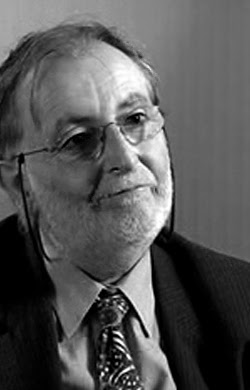 Both the Church Committee* and the House Select Committee on Assassinations gained access to the CIA Office of Security files of Lee Harvey Oswald. In 1993, despite a directive from CIA Director Robert Gates seeking an all-encompassing search of ALL CIA components for ANY material/records relevant to the assassination of President Kennedy, the Oswald OS files remained hidden. This huge search by CIA did not surface Oswald’s security files and the Assassination Records Review Board remained uninformed about their existence. Not until 1997 when an ARRB staffer stumbled across evidence that two previous congressional investigations had access to these files did CIA “discover” them. CIA told the ARRB that the reason the Oswald security files were not previously located was because those records were not at the Agency Archival Record Center in Alexandria, VA; they were in fact at CIA HQS in Langley within Office of Security Archival Holdings. How were they missed in the Gates search of 1993?
Both the Church Committee* and the House Select Committee on Assassinations gained access to the CIA Office of Security files of Lee Harvey Oswald. In 1993, despite a directive from CIA Director Robert Gates seeking an all-encompassing search of ALL CIA components for ANY material/records relevant to the assassination of President Kennedy, the Oswald OS files remained hidden. This huge search by CIA did not surface Oswald’s security files and the Assassination Records Review Board remained uninformed about their existence. Not until 1997 when an ARRB staffer stumbled across evidence that two previous congressional investigations had access to these files did CIA “discover” them. CIA told the ARRB that the reason the Oswald security files were not previously located was because those records were not at the Agency Archival Record Center in Alexandria, VA; they were in fact at CIA HQS in Langley within Office of Security Archival Holdings. How were they missed in the Gates search of 1993?









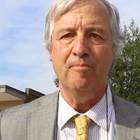
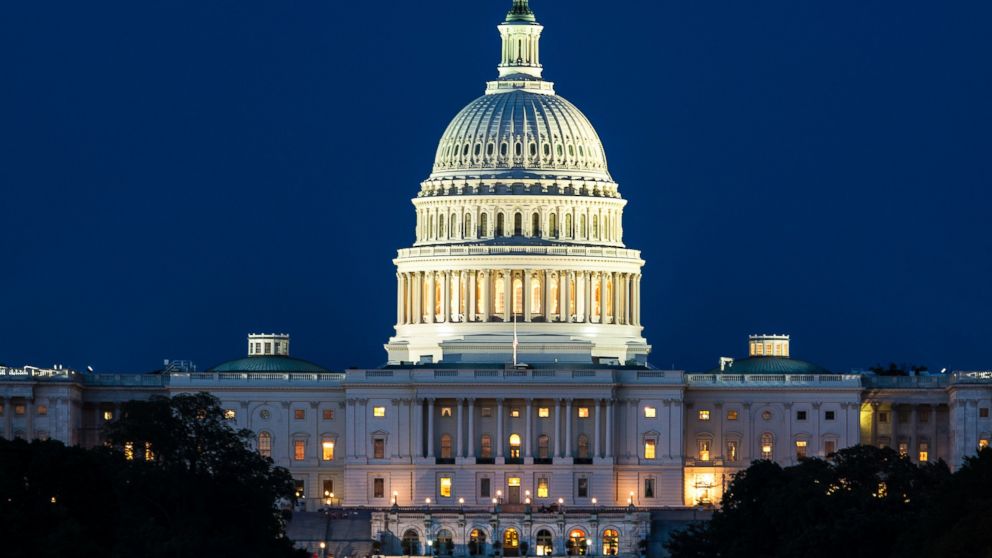
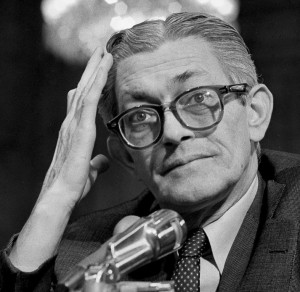
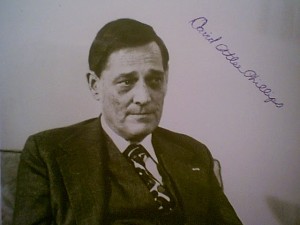

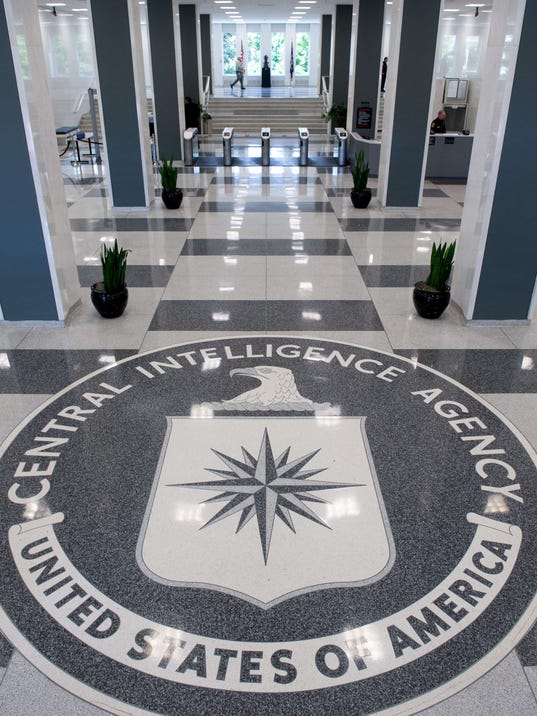 There has been no explanation, let alone a presidential certification, that the massive redactions in these “released in full” documents meet any of the mandatory exemptions that allow withholding. No identifiable harm is specified. No rationale is given as to why the secrets protected outweigh the public interest in disclosure. These files are not in compliance with the law no matter what the main stream media says. They are an in-your-face flipped bird to the American public. They basically tell us that the CIA is saying that they don’t have to comply with the law of the land and that they will not tell us their secrets and that there is nothing we can do about it. I’ve been here before. It was in a small room in CIA Headquarters in late 1978. I had been fighting to see a file generated by the CIA debriefing of Johnny Roselli. Scott Breckinridge and George Joannides had just handed me a highly redacted file that violated the HSCA/CIA Memorandum of Understanding mandating unexpurgated access by HSCA to CIA files. They stood by, grinning, as they watched my reaction upon opening the file to find it largely expurgated. They were grinning so hard because they knew they had waited out the HSCA and there was nothing I could do about it. The Angleton strategy still worked. It is still working today.
There has been no explanation, let alone a presidential certification, that the massive redactions in these “released in full” documents meet any of the mandatory exemptions that allow withholding. No identifiable harm is specified. No rationale is given as to why the secrets protected outweigh the public interest in disclosure. These files are not in compliance with the law no matter what the main stream media says. They are an in-your-face flipped bird to the American public. They basically tell us that the CIA is saying that they don’t have to comply with the law of the land and that they will not tell us their secrets and that there is nothing we can do about it. I’ve been here before. It was in a small room in CIA Headquarters in late 1978. I had been fighting to see a file generated by the CIA debriefing of Johnny Roselli. Scott Breckinridge and George Joannides had just handed me a highly redacted file that violated the HSCA/CIA Memorandum of Understanding mandating unexpurgated access by HSCA to CIA files. They stood by, grinning, as they watched my reaction upon opening the file to find it largely expurgated. They were grinning so hard because they knew they had waited out the HSCA and there was nothing I could do about it. The Angleton strategy still worked. It is still working today.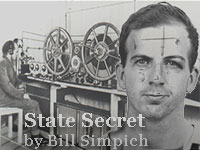
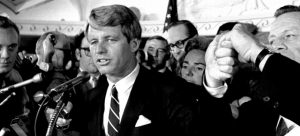
 t was 1968.
t was 1968.